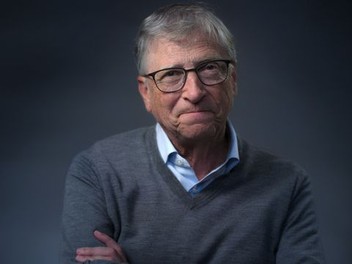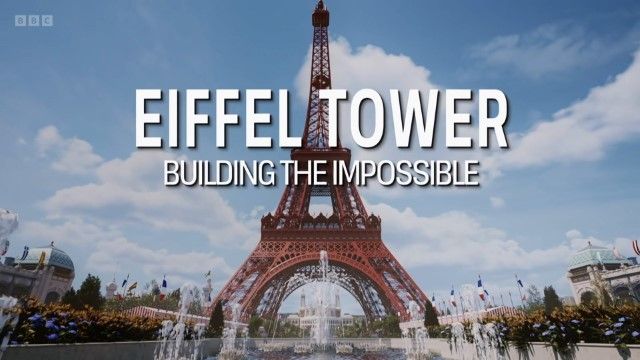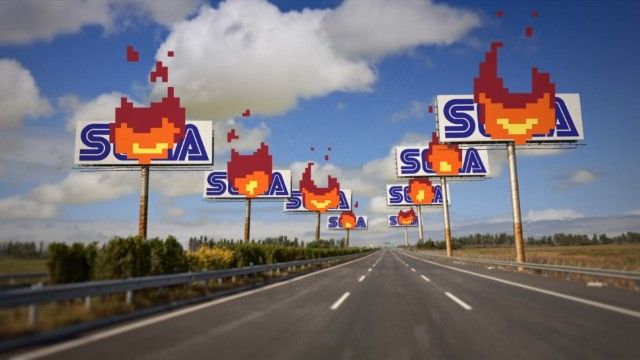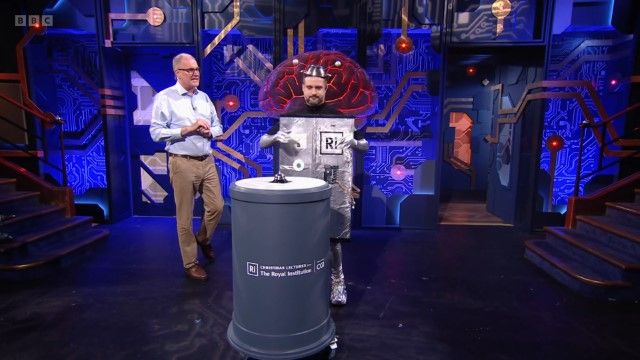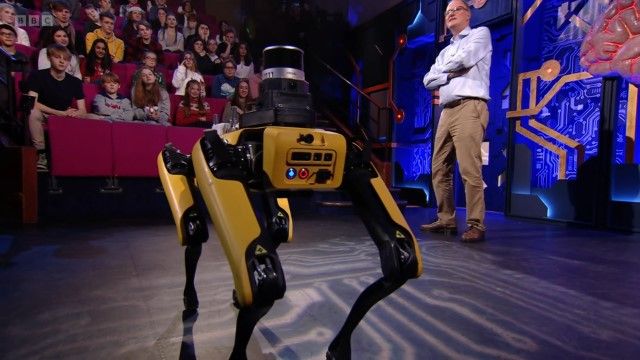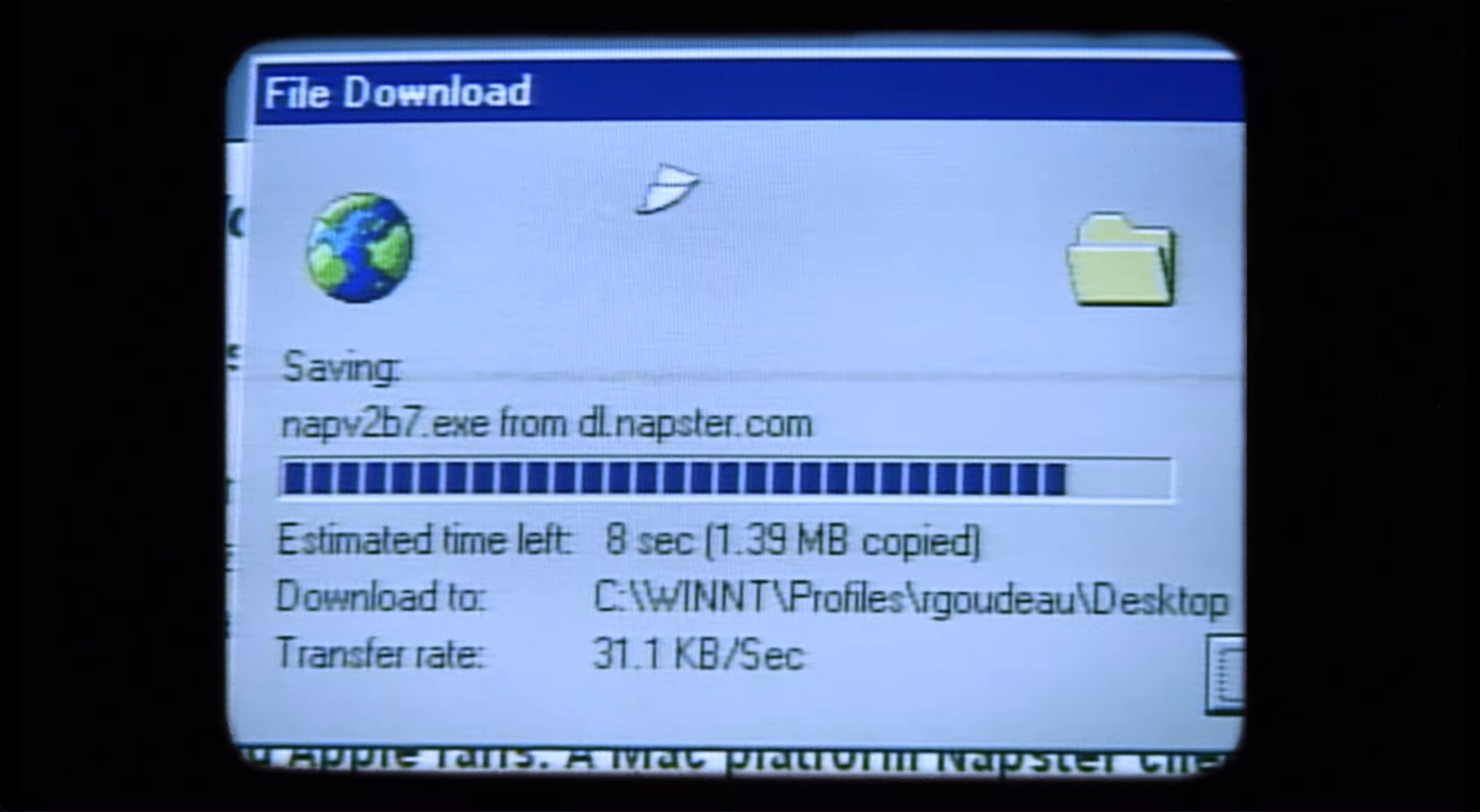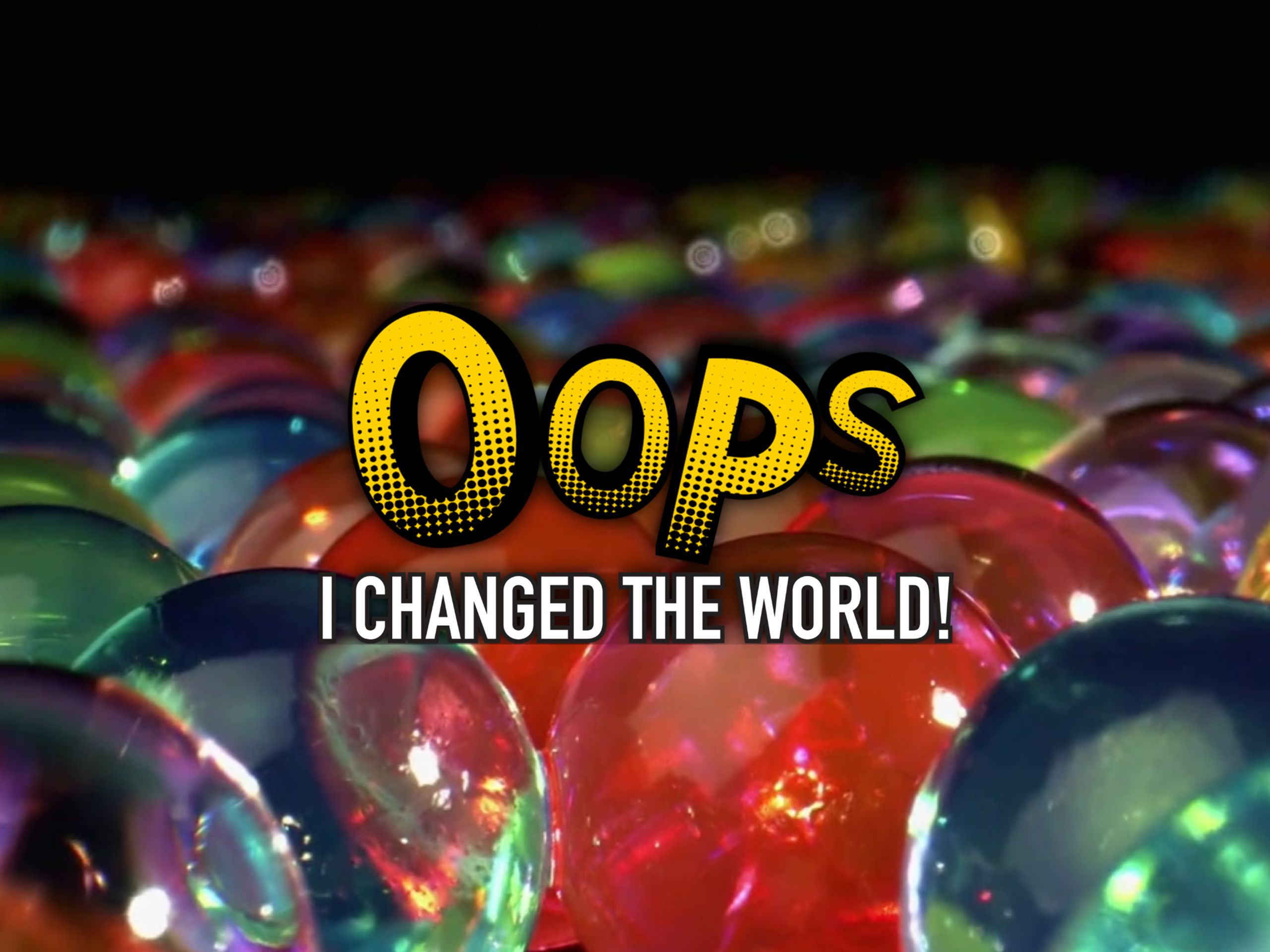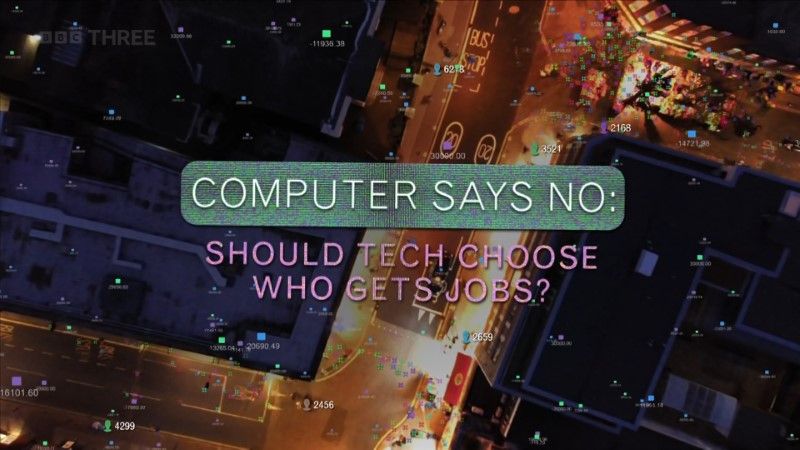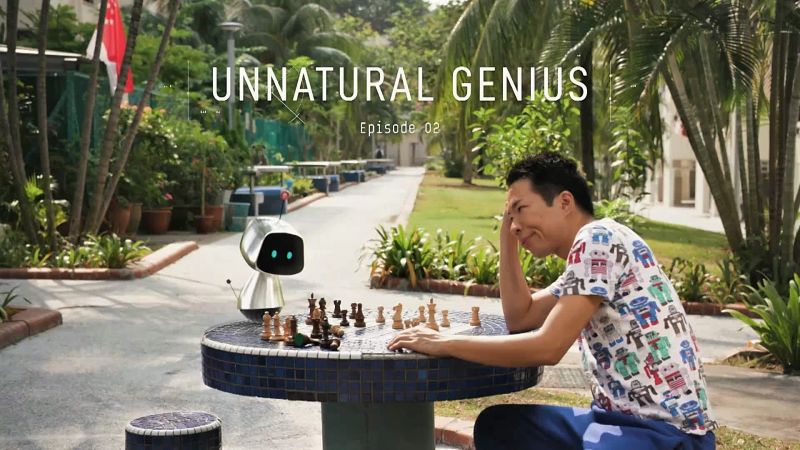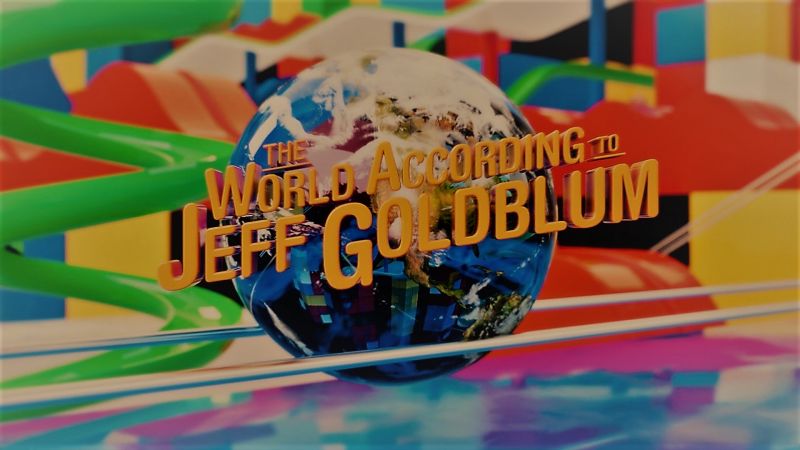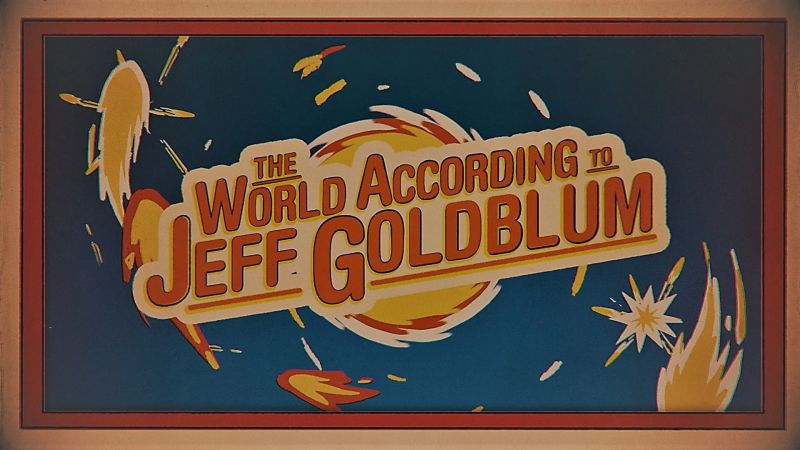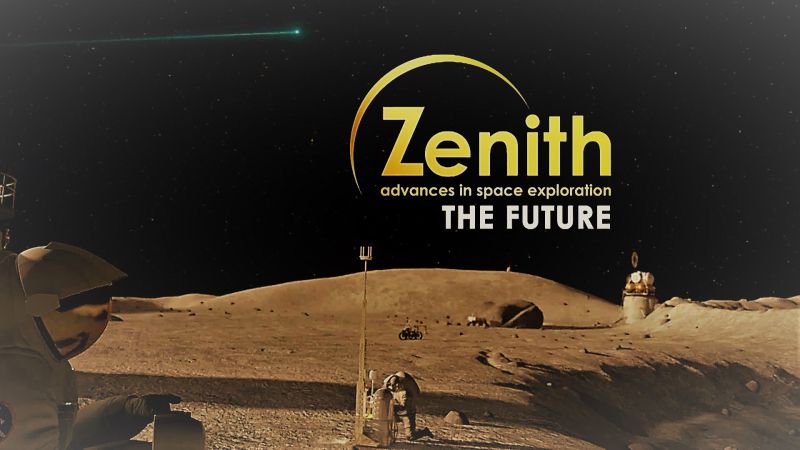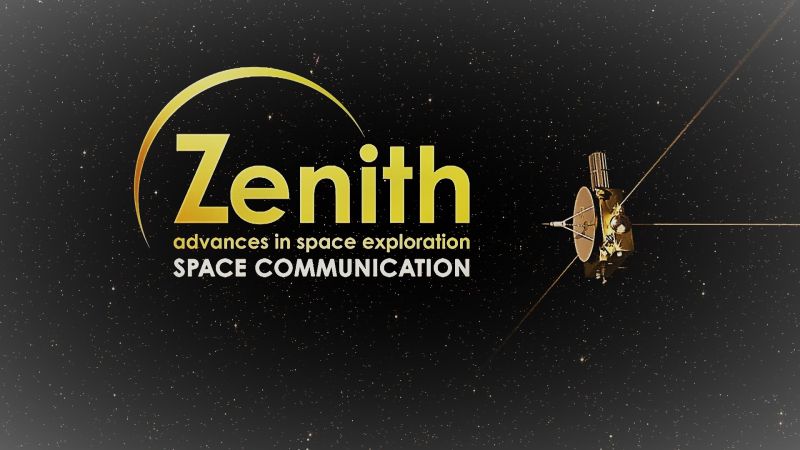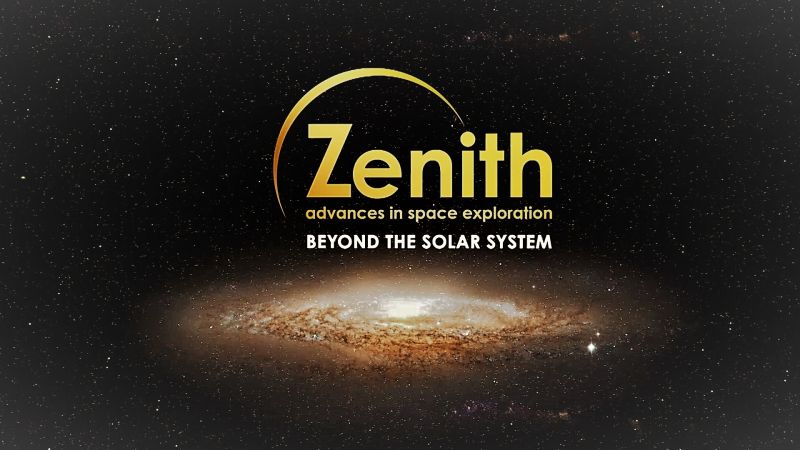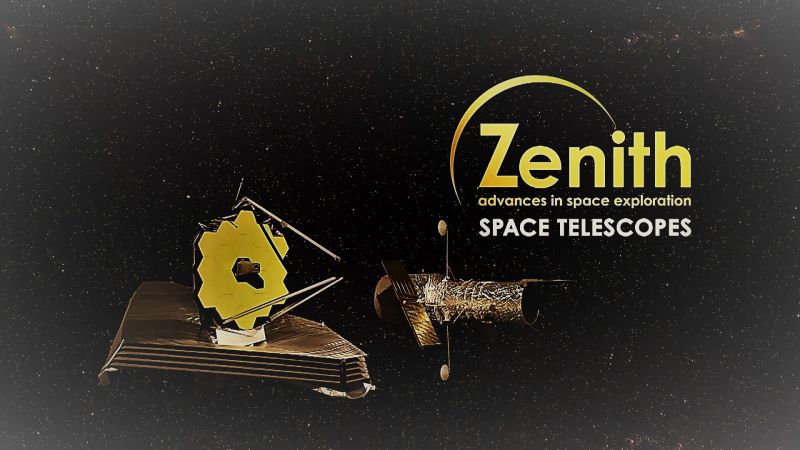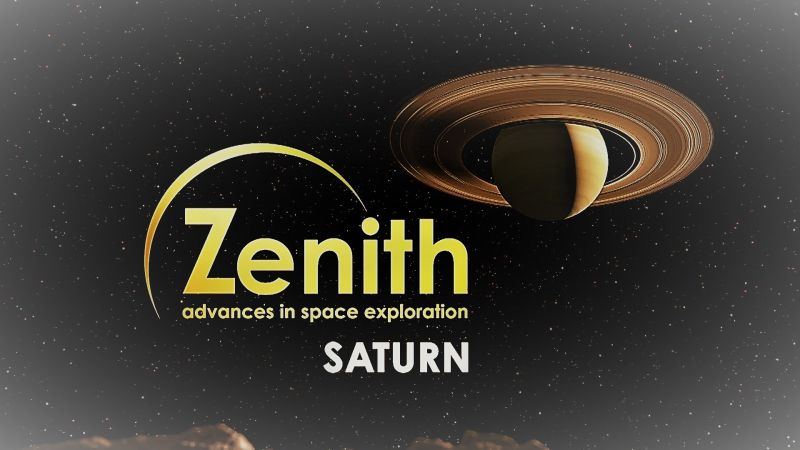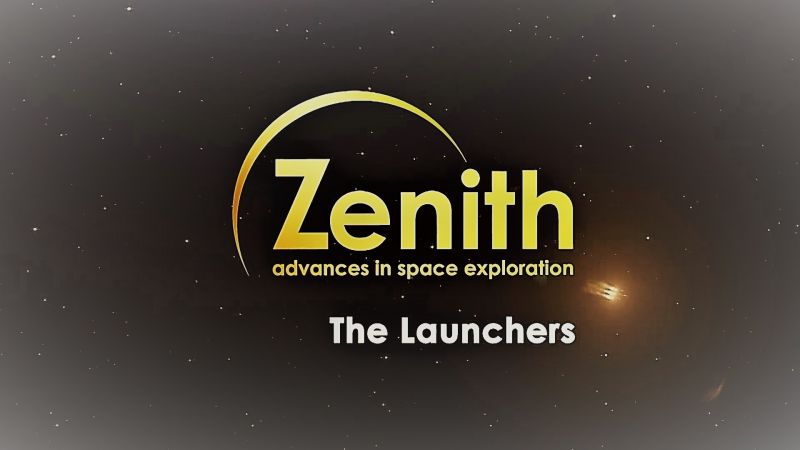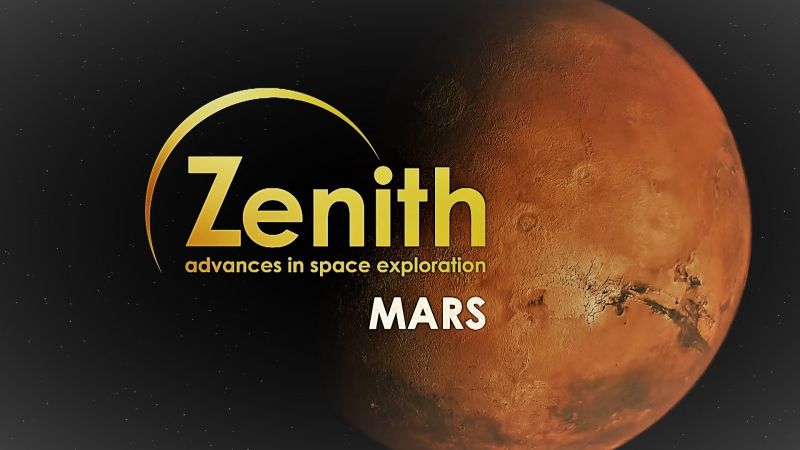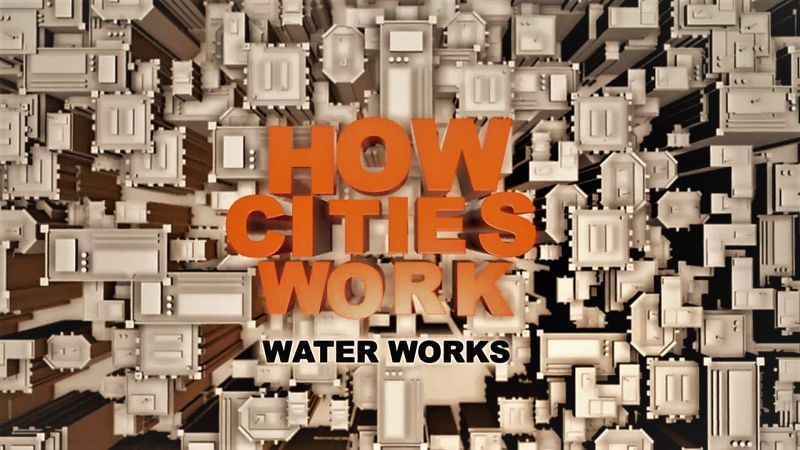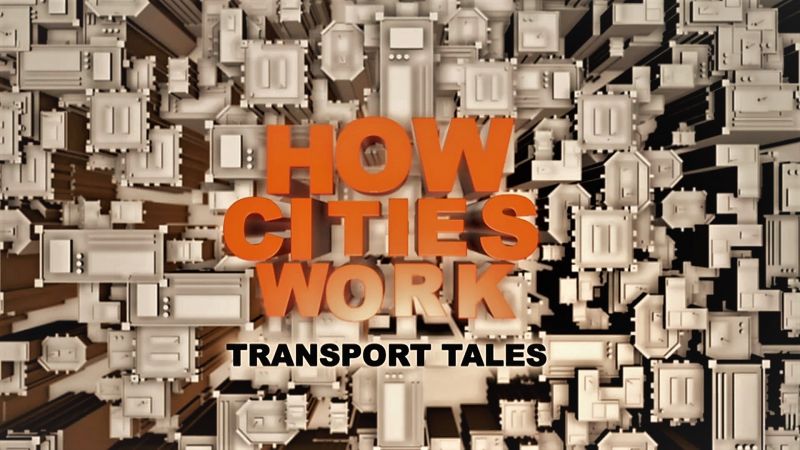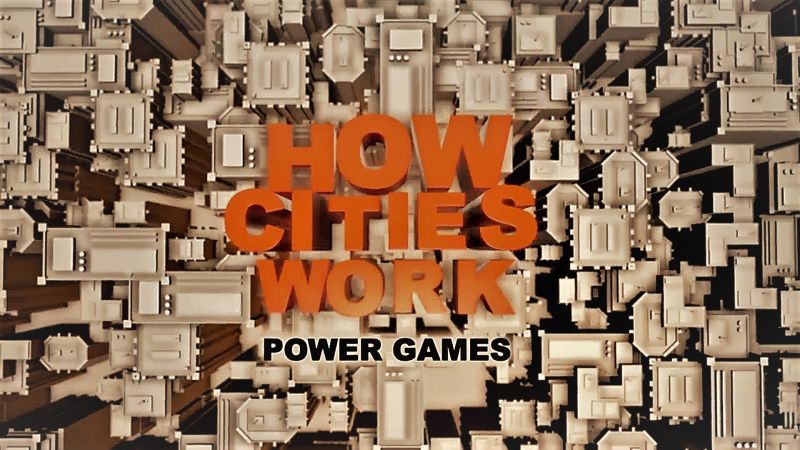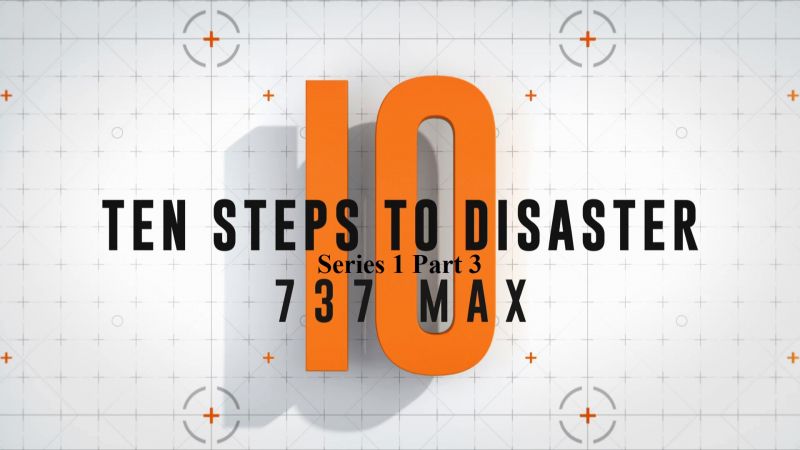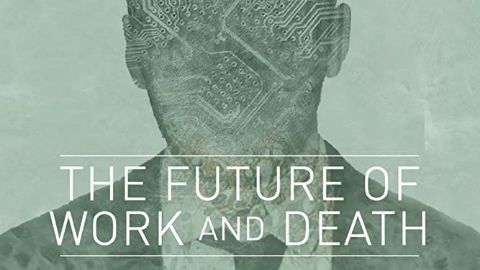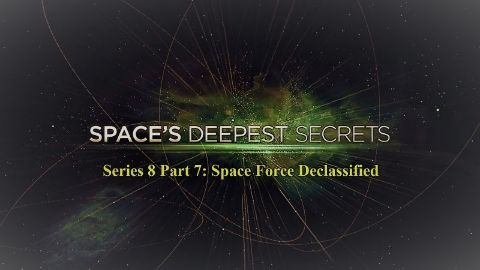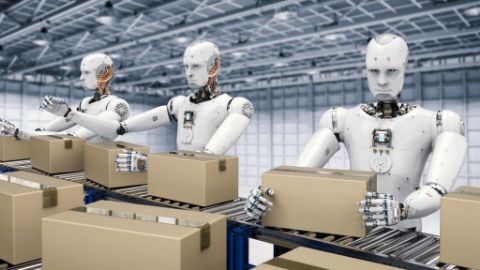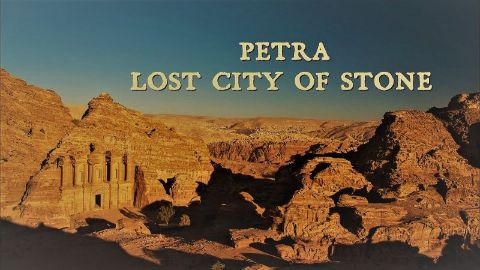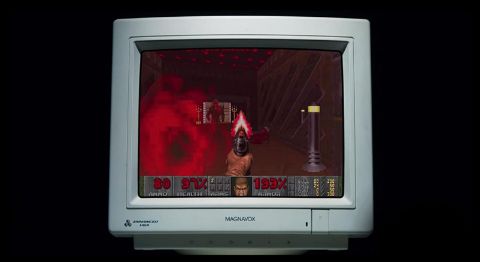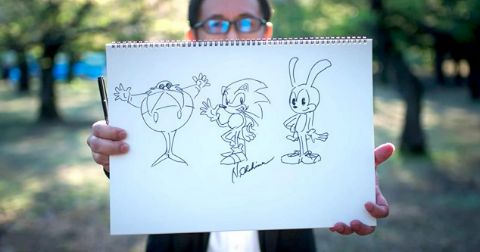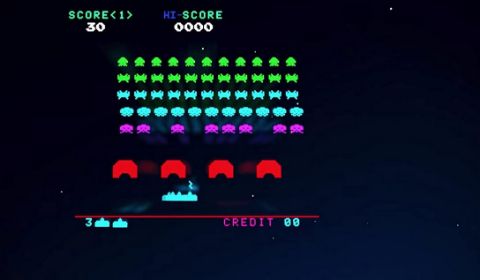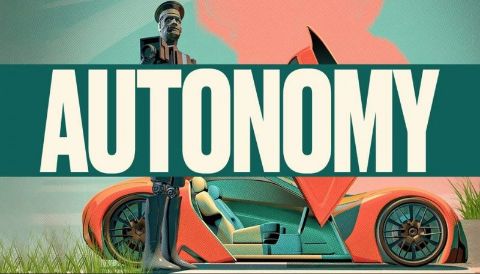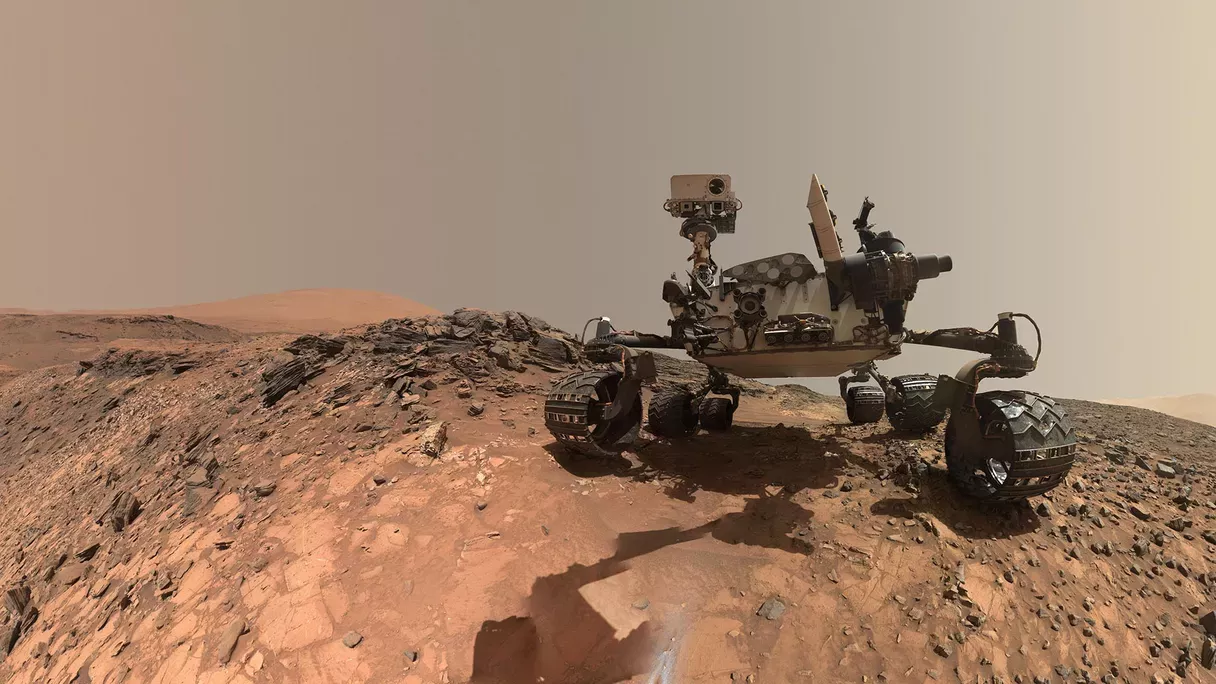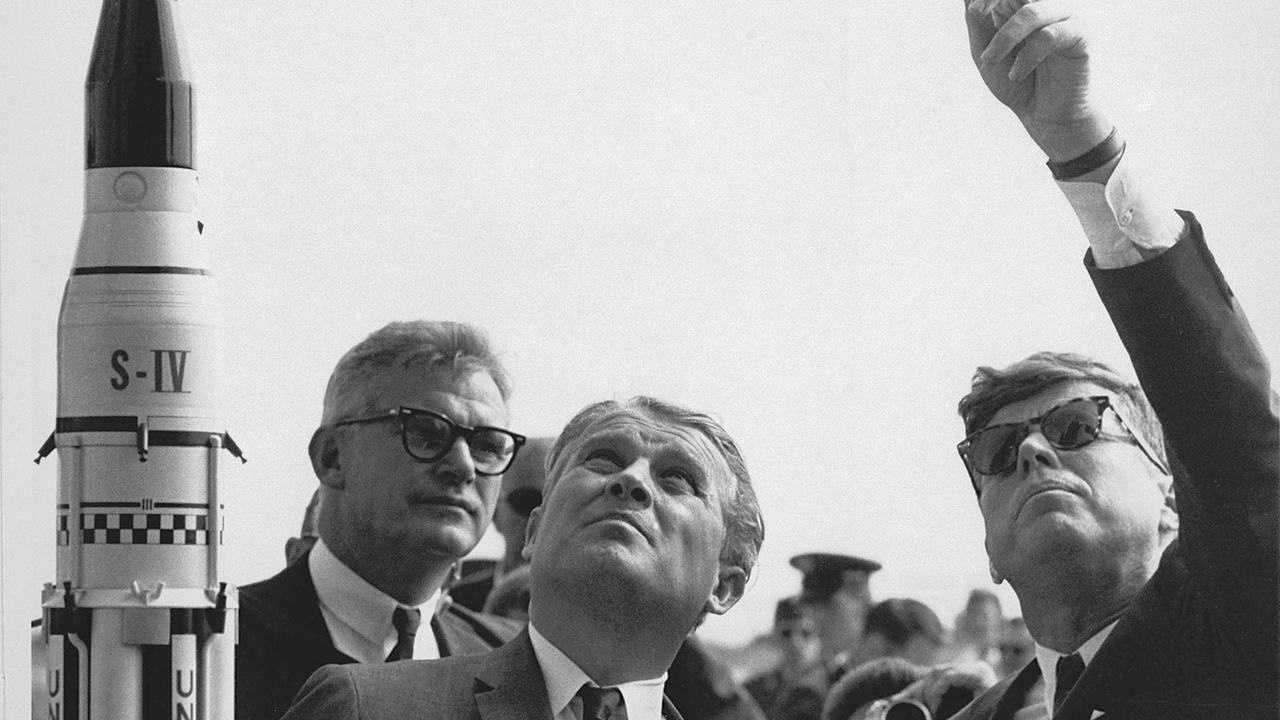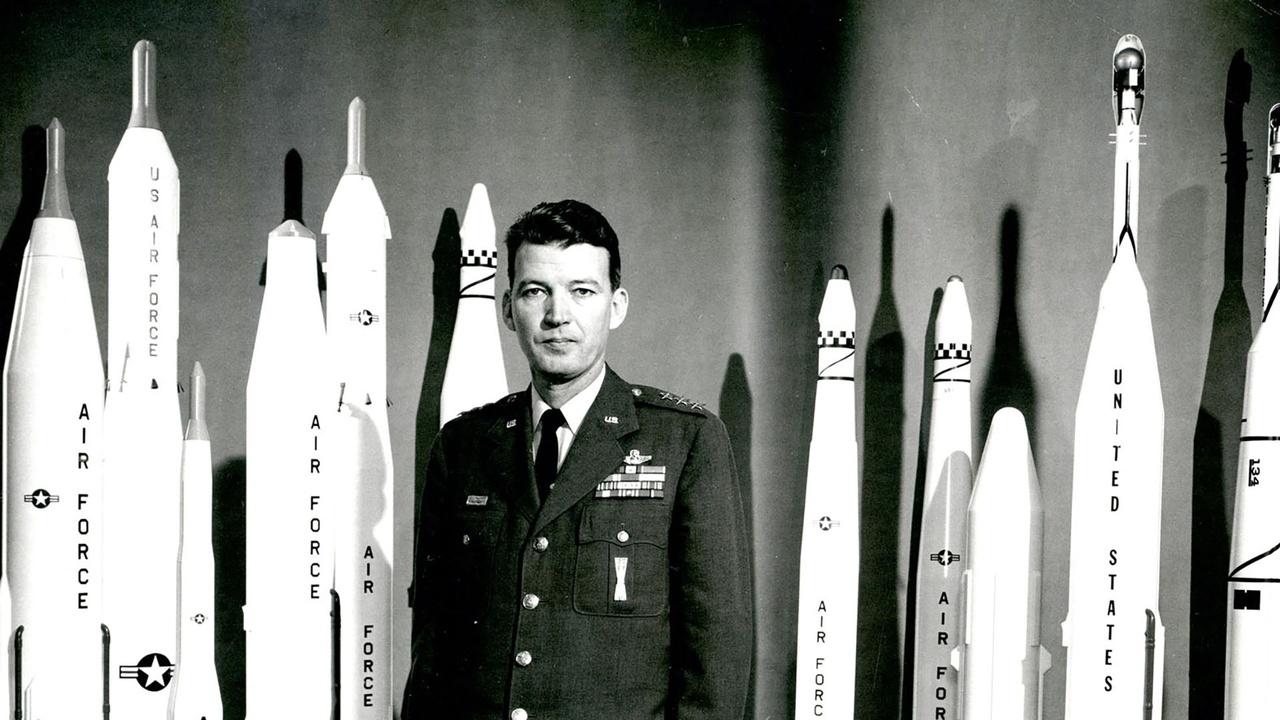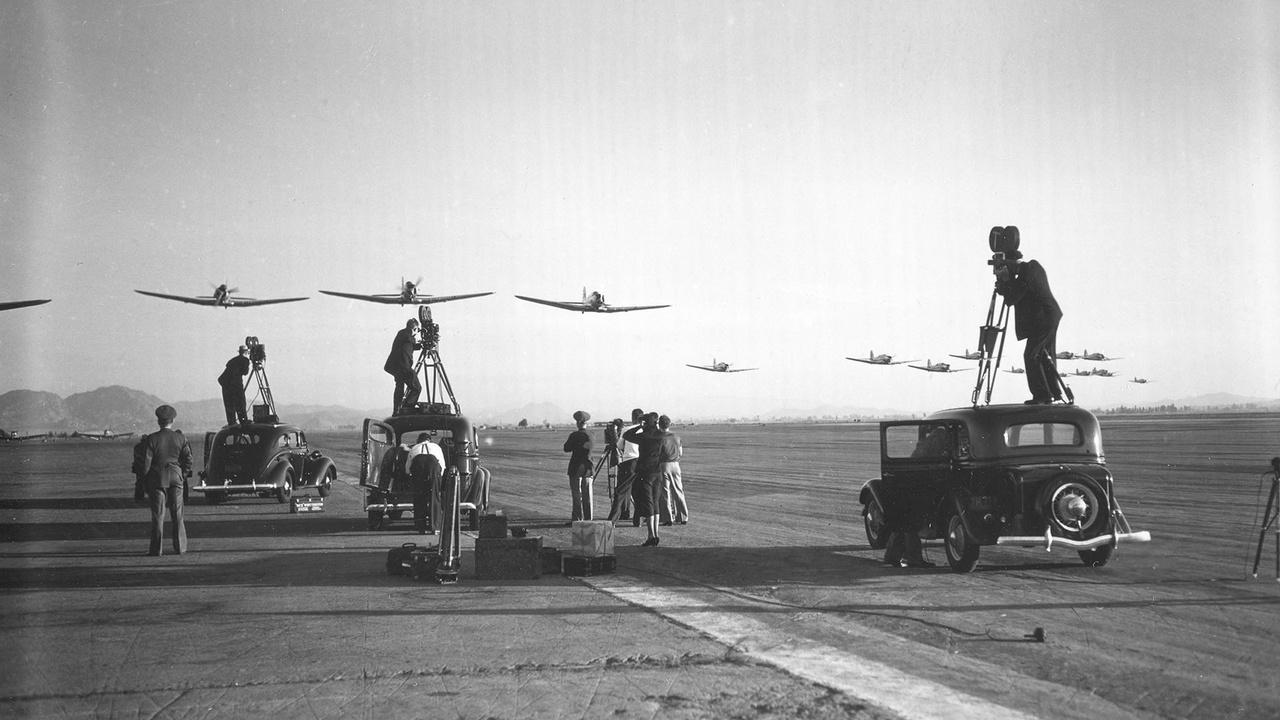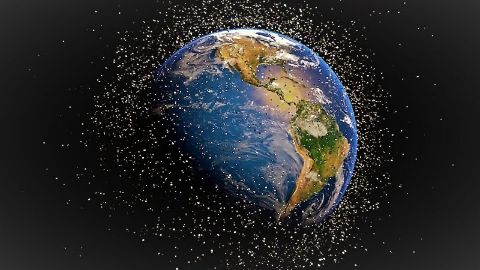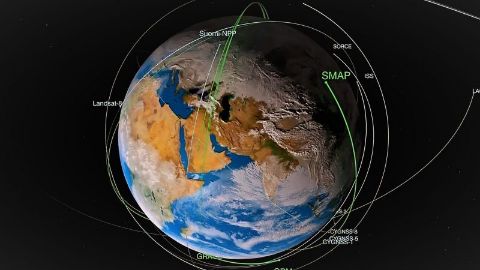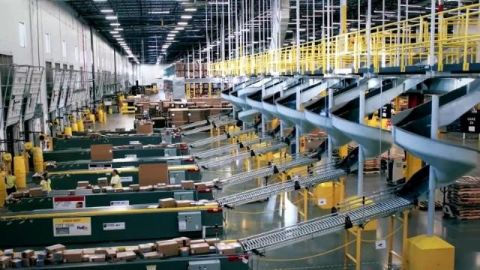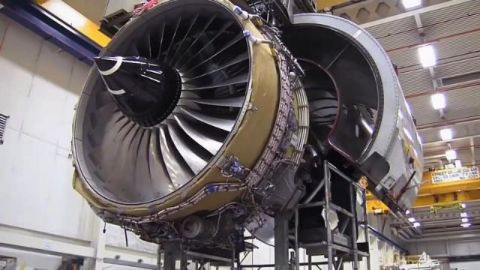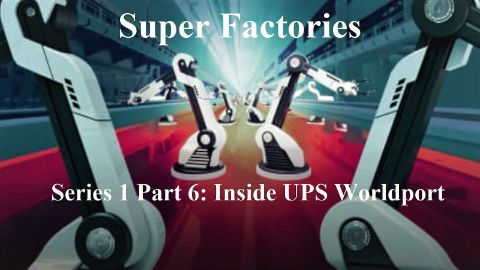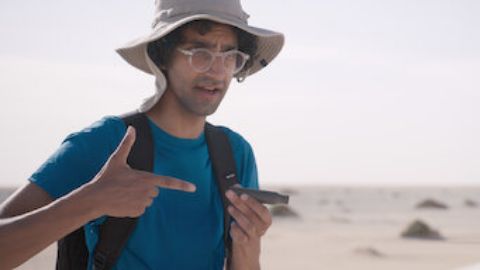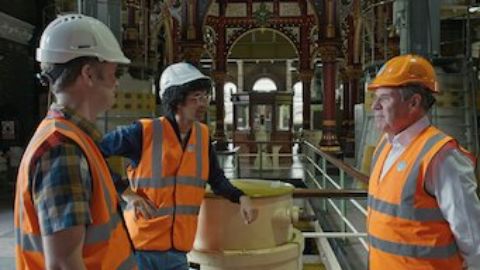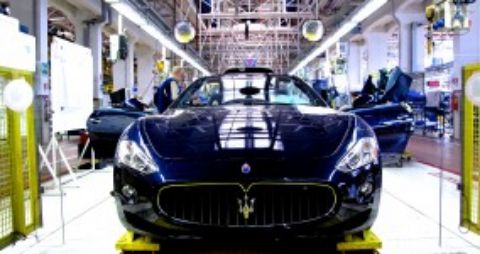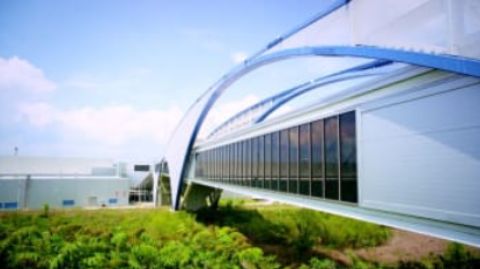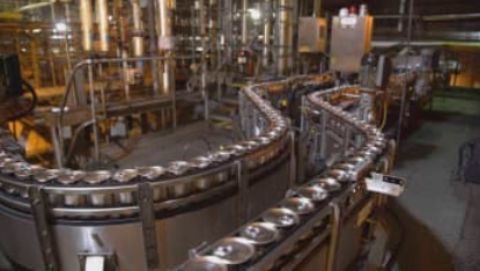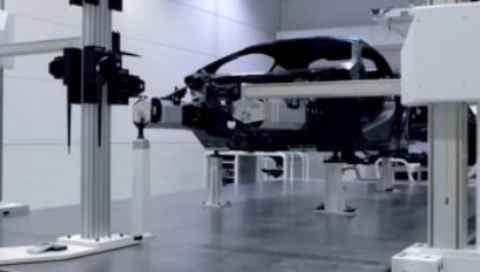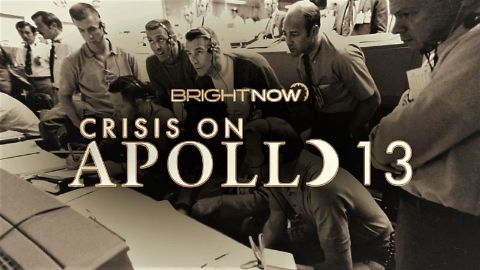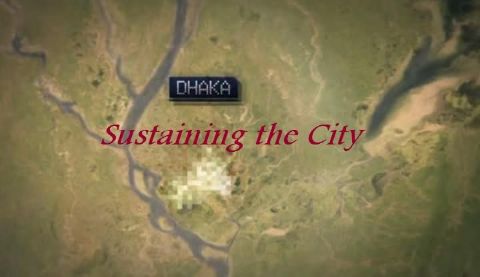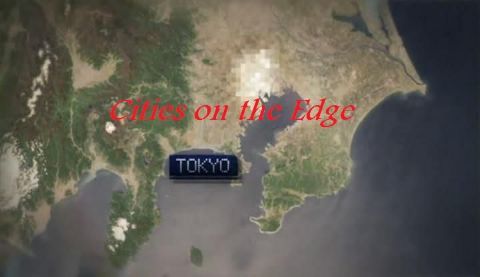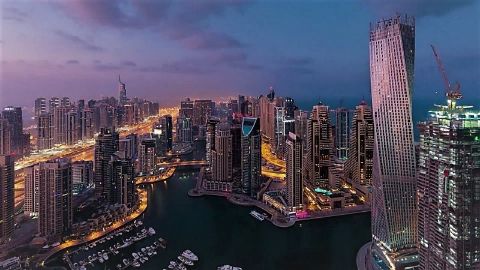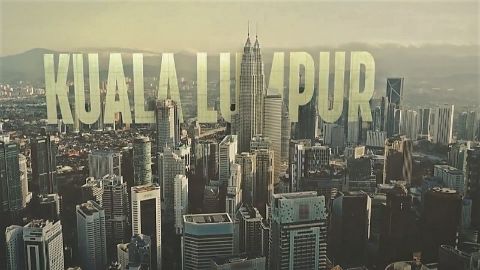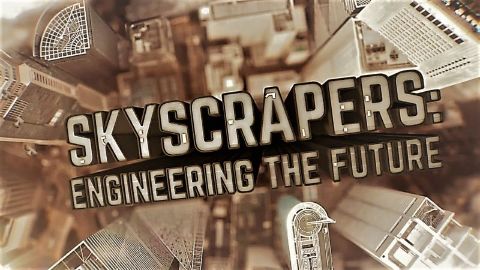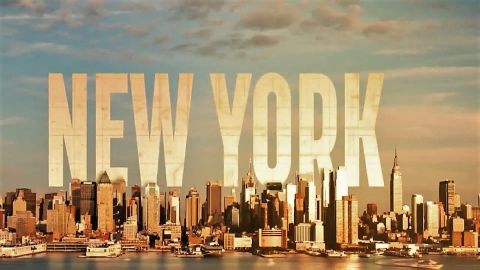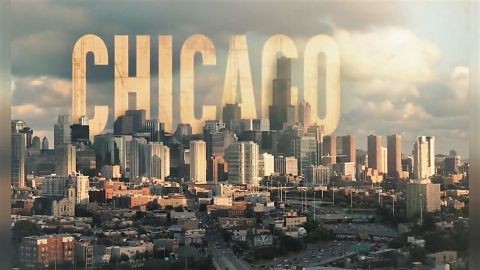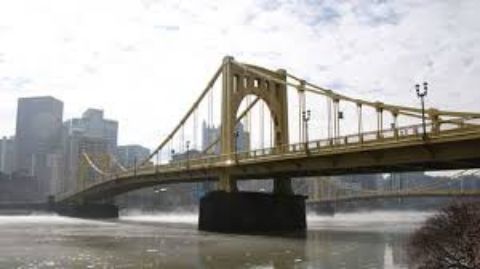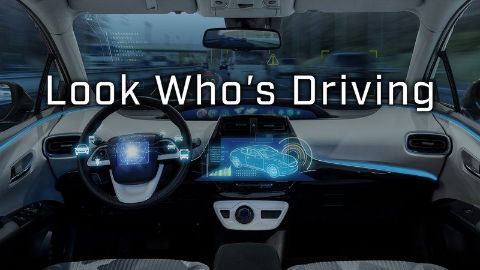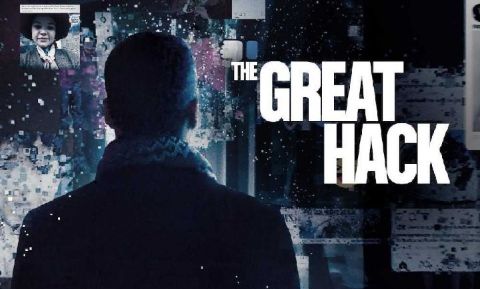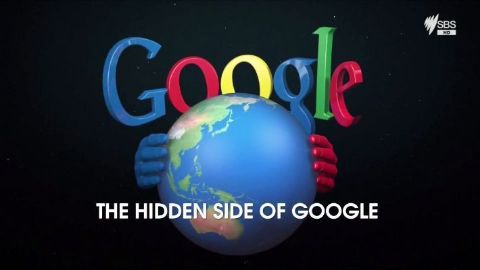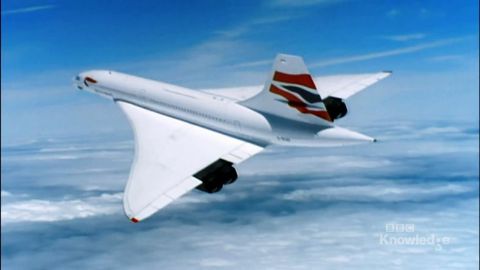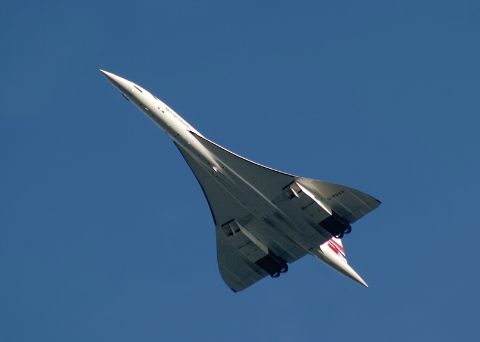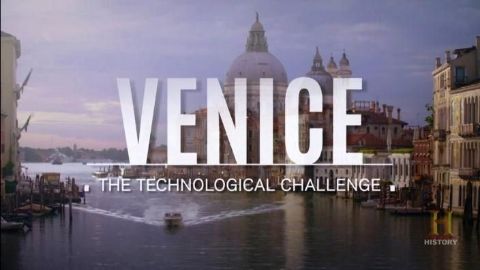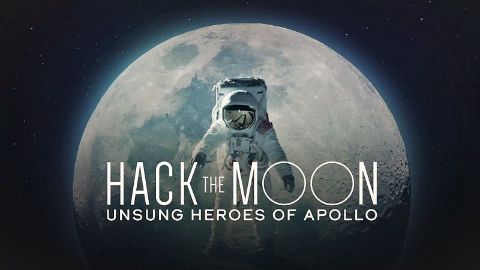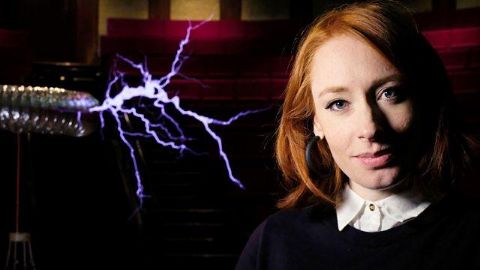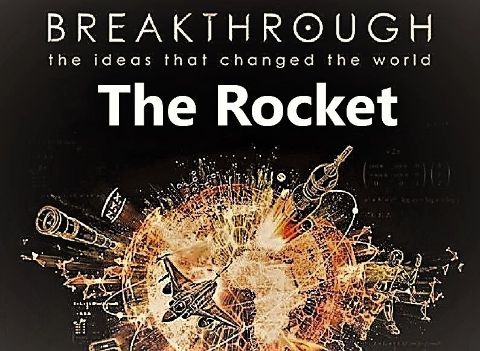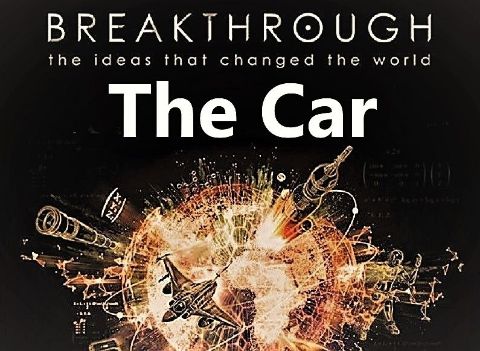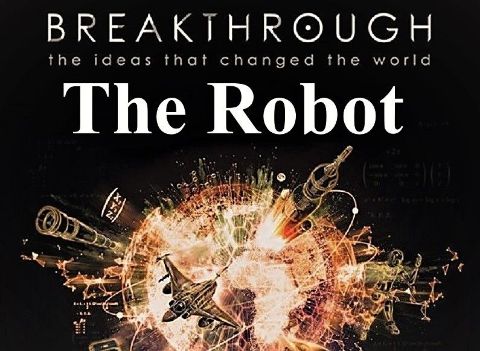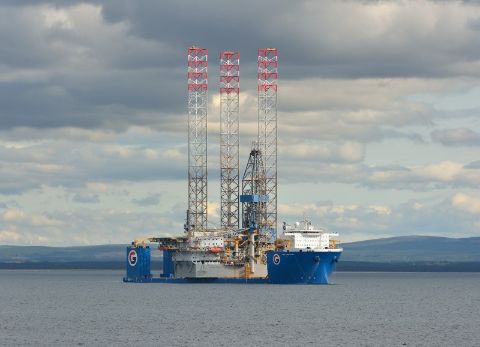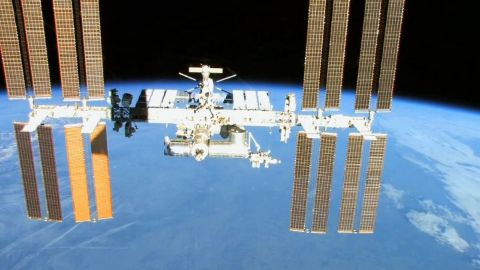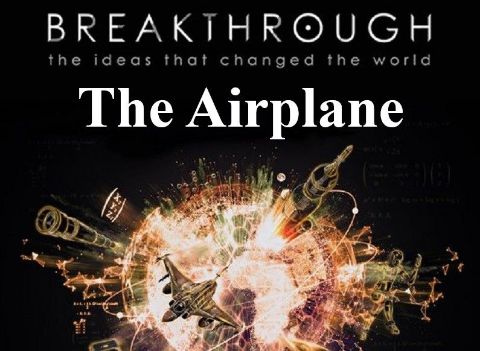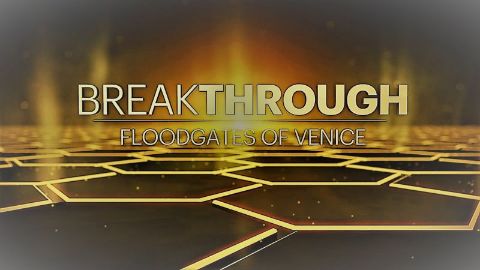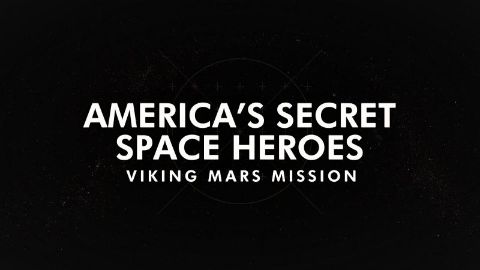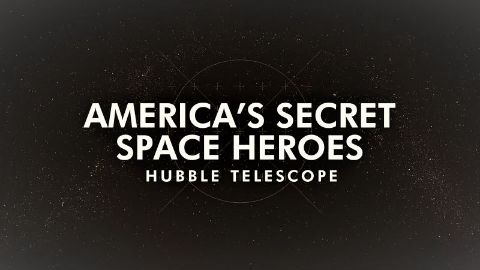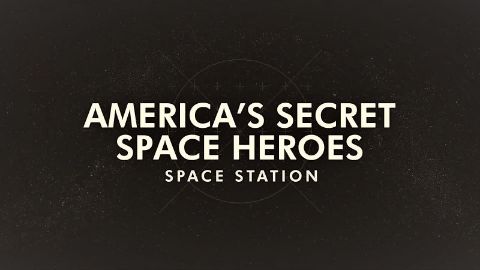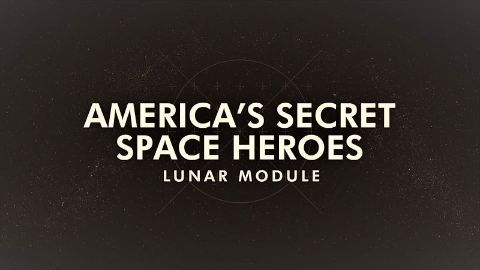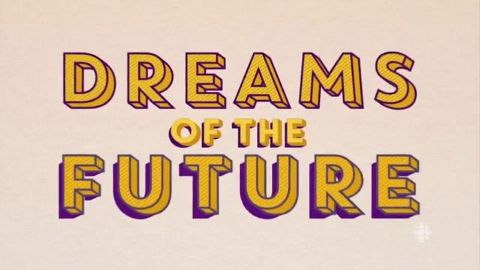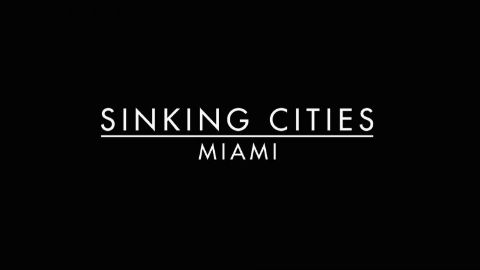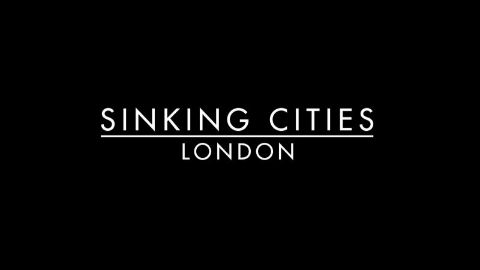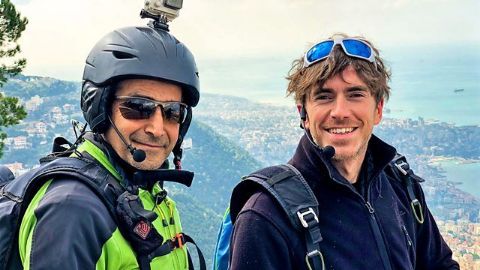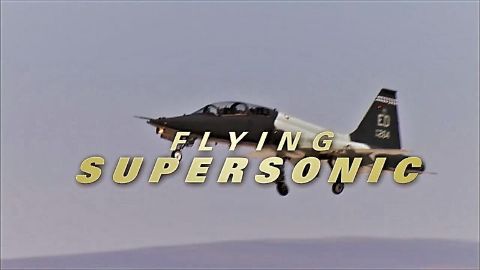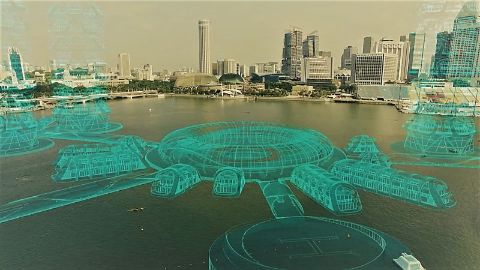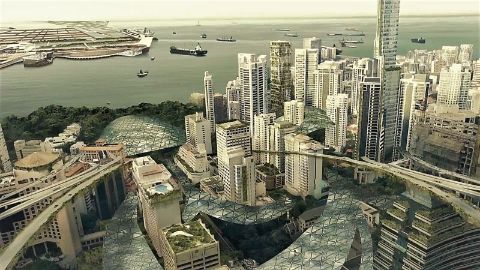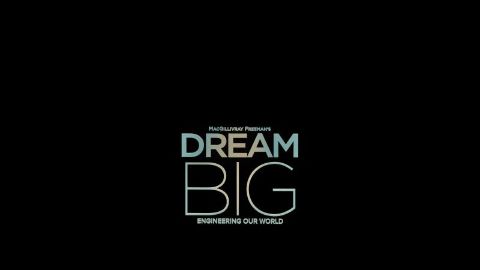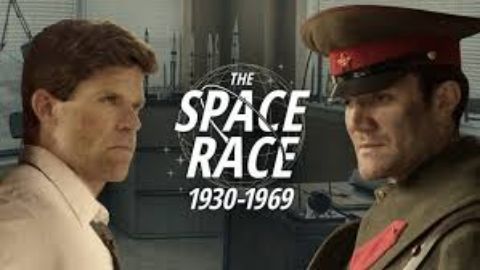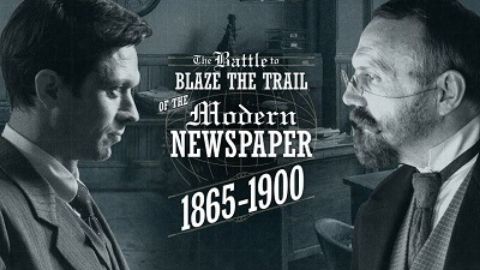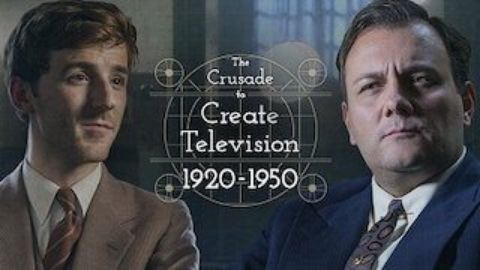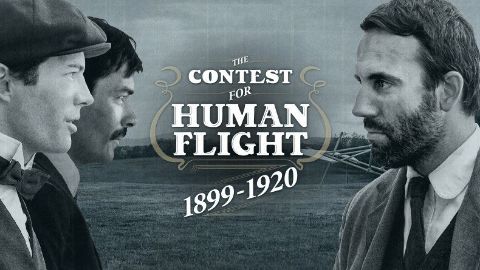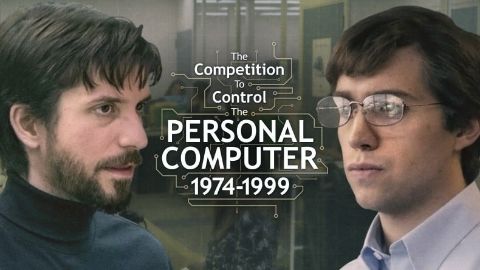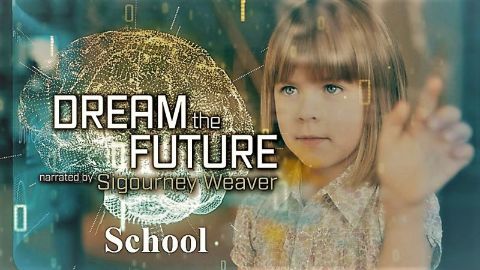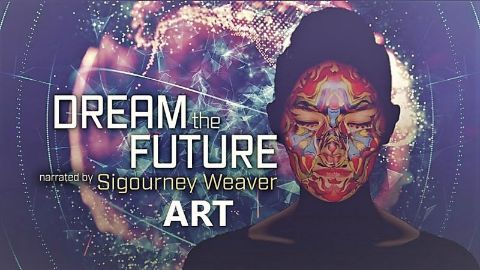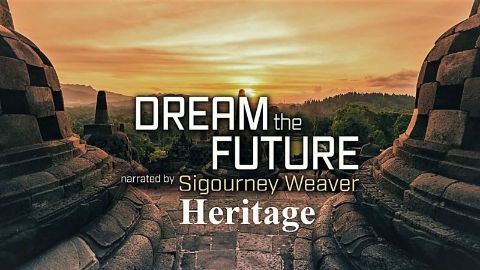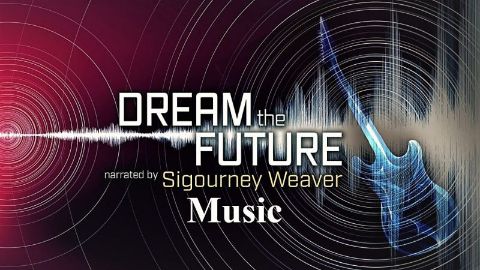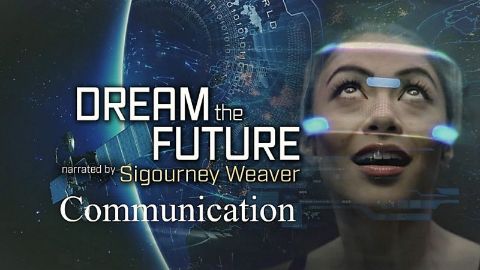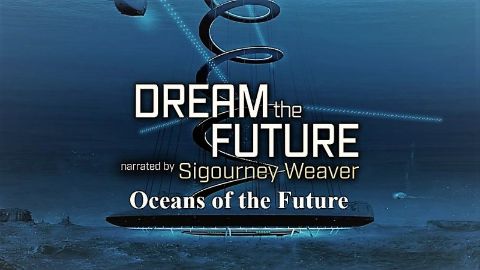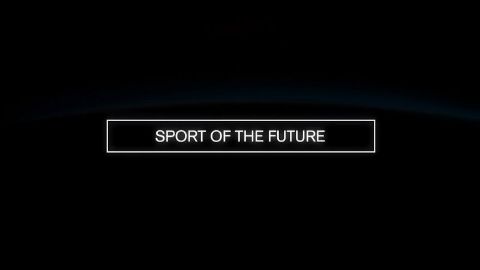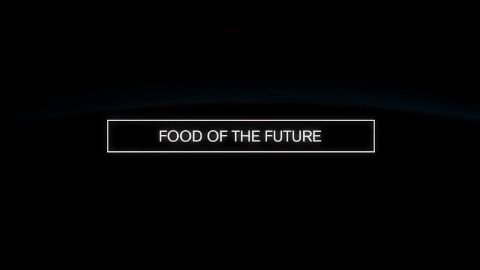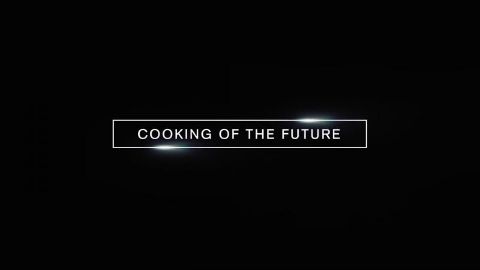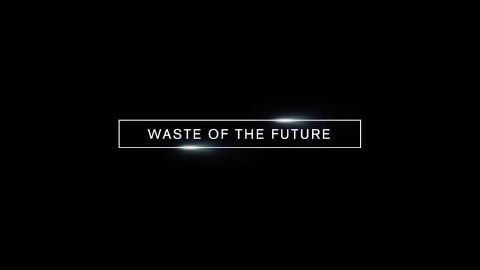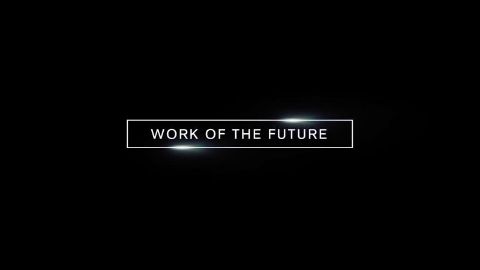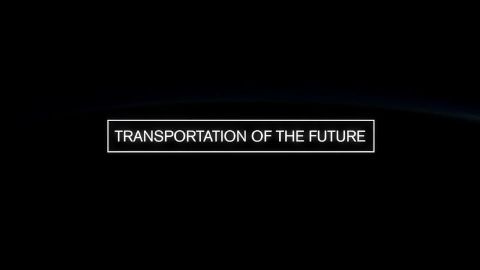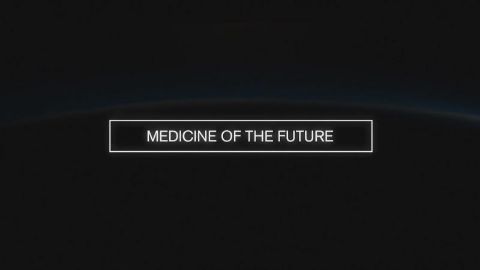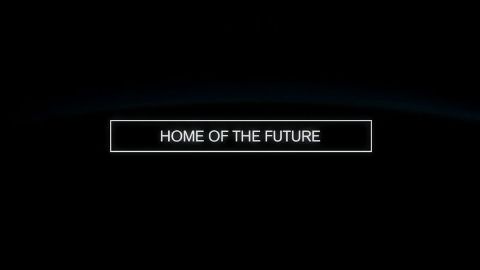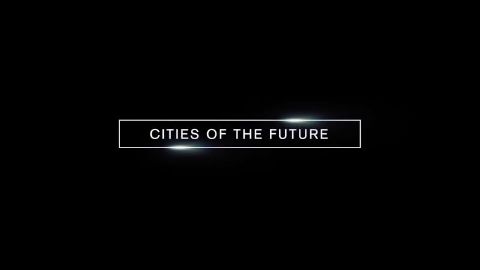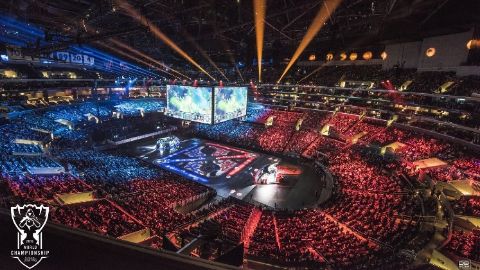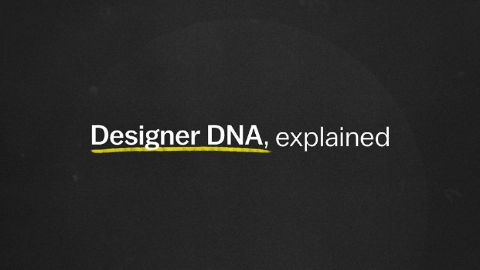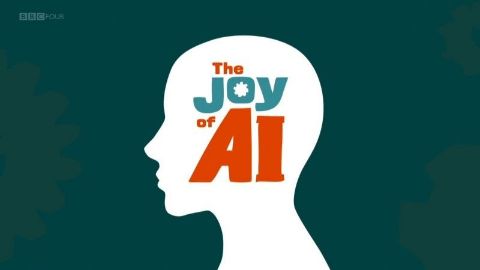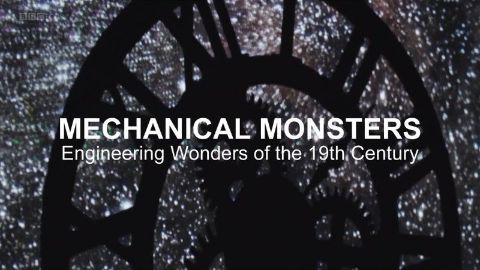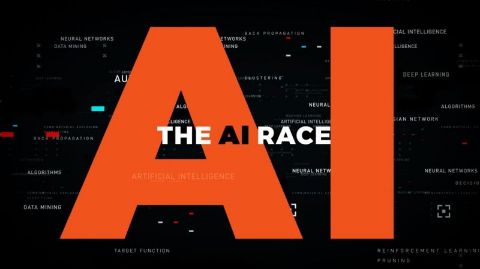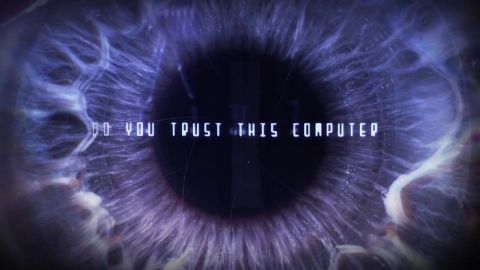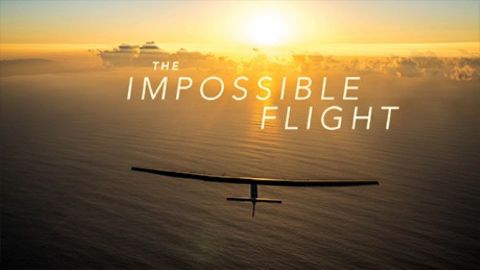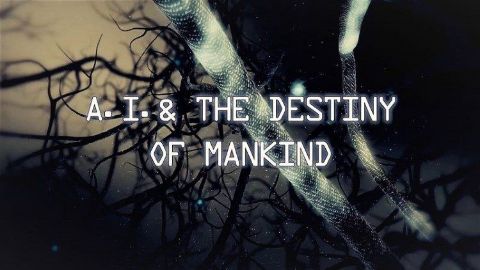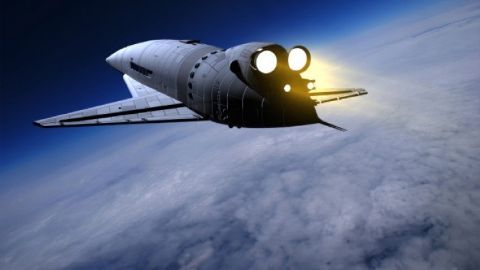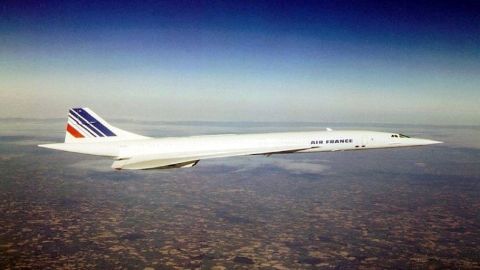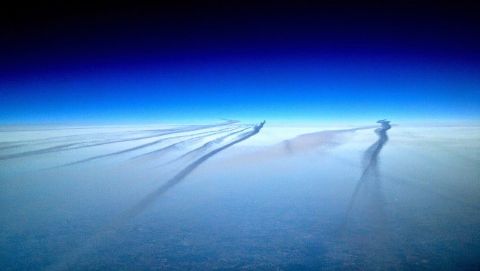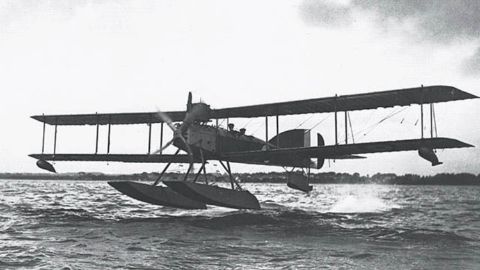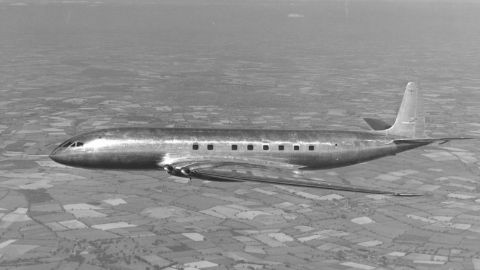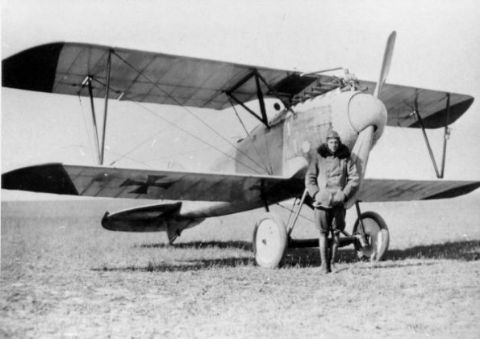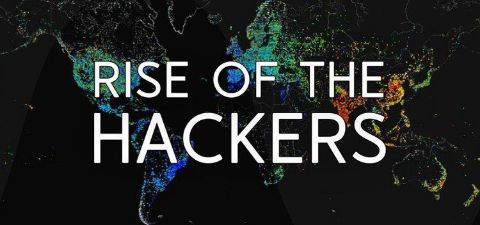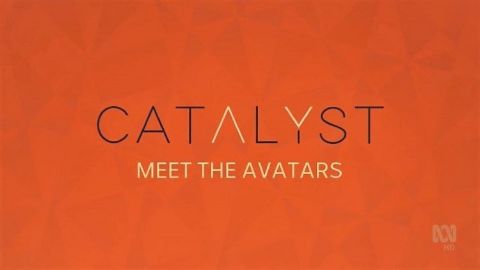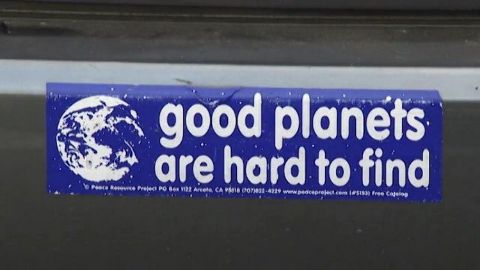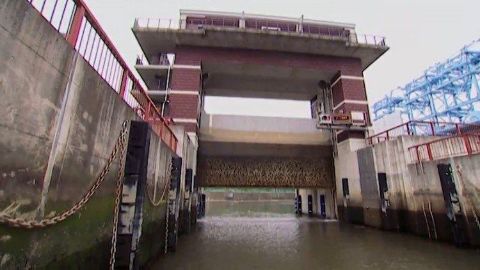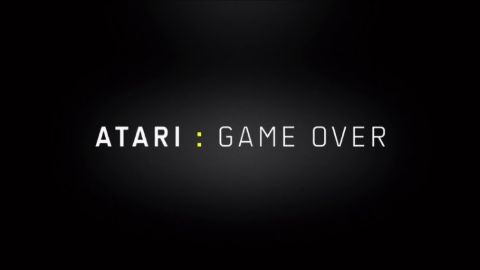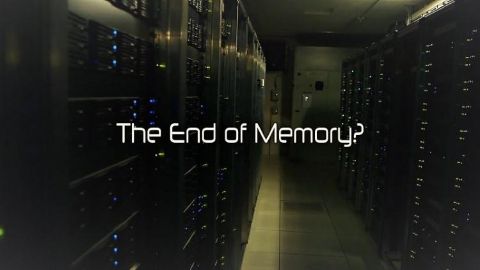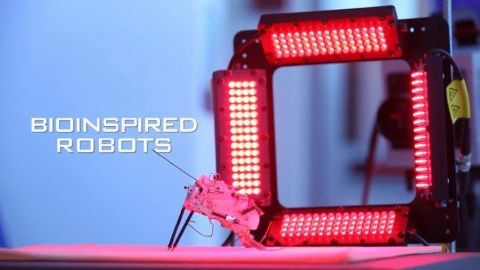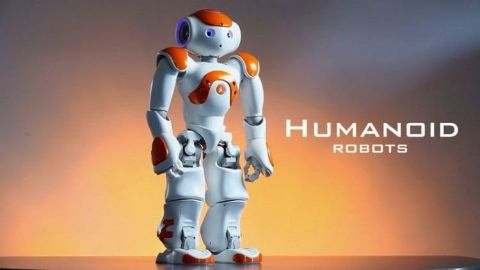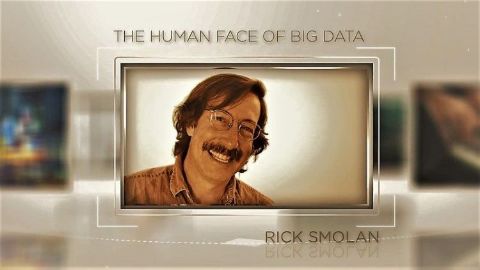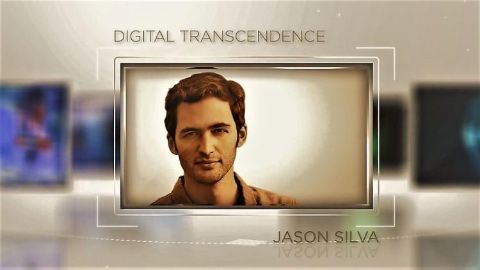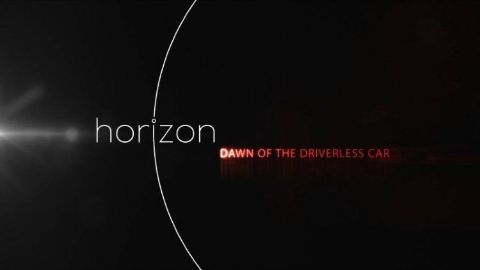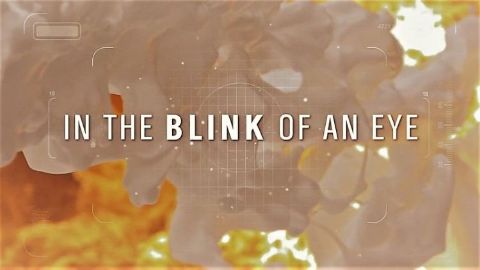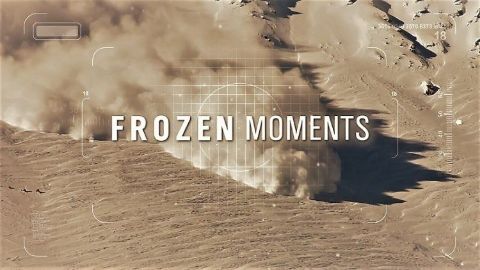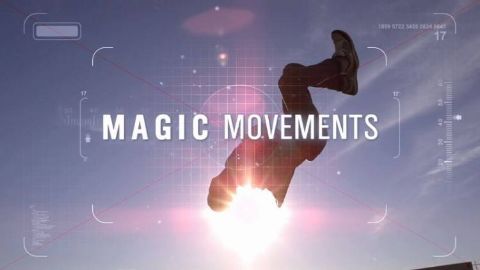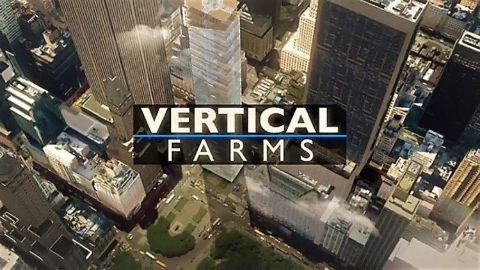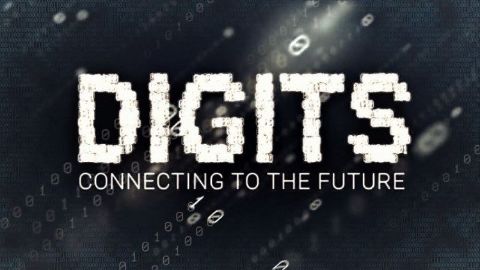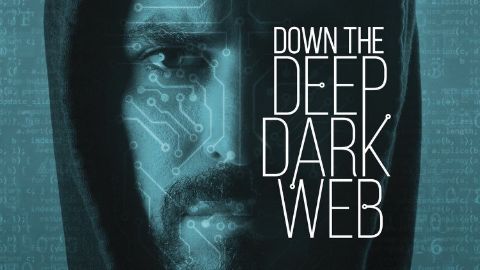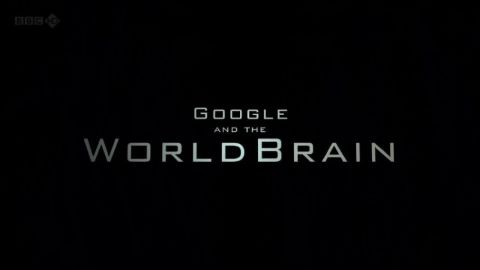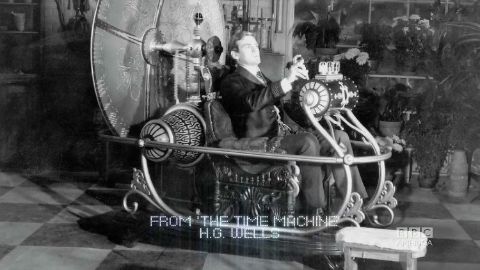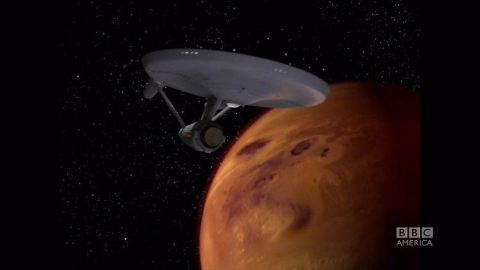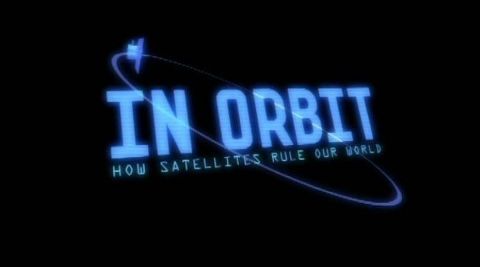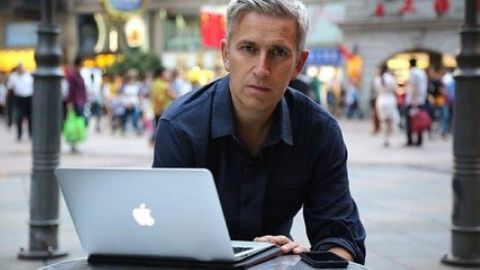TECHNOLOGY • 264 videos
Tells the story of the Sinclair ZX Spectrum. This film goes into all the finer details of how and why the ZX Spectrum was created, what impact the computer had as well as the various versions that followed right the way through to the latest iteration of the system with the ZX Spectrum Next. Complete with interviews from industry legends.
2024 • Technology
The inside story of the tech entrepreneurs who created the social media app Twitter. At first the site grew on the back of celebrities who realised it offered them a direct way to communicate with fans. After going global, it seemed to be fulfilling the founders' dream of a digital utopia where all voices would be heard. But as hate speech and misinformation flooded the platform, the founders faced growing problems to control it - and the sale to Elon Musk in 2022 represented the end of their dream.
2025 • Technology
Gabriel Gatehouse tries to solve the biggest mystery in tech: who is Satoshi Nakamoto, the creator of Bitcoin? Now a multi trillion-dollar industry, its pseudonymous inventor has not been heard from since 2011. Whoever it is could be one of the richest people on the planet, and yet their identity remains unknown. Whilst on the trail for Bitcoin's inventor, Gabriel uncovers a conspiracy to end democracy and transform the world as we know it.
2025 • Technology
Can technology help eradicate infectious diseases? Bill meets with Dr. Anthony Fauci and other public health experts to examine the latest breakthroughs.
S1E5 • What's Next: The Future with Bill Gates • 2024 • Technology
The income gap is a growing concern with far-reaching implications. Bill explores ways to address inequality with Sens. Bernie Sanders and Mitt Romney.
S1E4 • What's Next: The Future with Bill Gates • 2024 • Technology
Gates tackles the efficacy of fighting climate change, weighing the cost-benefit analysis that future generations will inevitably have to confront.
S1E3 • What's Next: The Future with Bill Gates • 2024 • Technology
Preserving truth in an era of misinformation is challenging. Bill traces the life cycle and impact of conspiracy theories, with insights from Lady Gaga.
S1E3 • What's Next: The Future with Bill Gates • 2024 • Technology
Love or loathe him, Microsoft founder Bill Gates presents an easily digested documentary series on the threats and opportunities facing humanity now and in the future.
S1E1 • What's Next: The Future with Bill Gates • 2024 • Technology
Explores the digital afterlife business. What if a person's death did not mean the end of their life? What if their loved ones could still talk to them long after their body has been cremated or is lying lifeless in the ground? What sounds like the scenario of a science fiction movie is already offered by companies today. By using AI, these startups create avatars of deceased people to allow their loved ones to interact with them. Eternal You tells the story of a human experiment: what does it do to people to resurrect their deceased loved ones in order to talk to them? Who takes responsibility for the psychological and ethical consequences? And do we even want all this?
2024 • Technology
Tells the epic story of the first transatlantic communications cable laid between Valentia Island, County Kerry, and Newfoundland, Canada. The first transmission via undersea cable on 16th of August 1858 signalled a new age of modern communication and laid the foundation of modern Ireland's technology industry, with impacts still being felt today. Prior to this technological advancement, messages took at least ten days to travel by ship. Today, 99% of all internet and mobile communications are powered by undersea cable, not by not by satellite. In the digital age, undersea cable remains the cheapest and most efficient communications method, with all major global tech companies utilising and investing in them across the world. The two communities at the centre of this story, Valentia Island and Heart's Content, share a vision of securing UNESCO World Heritage status. It is hoped that the cable houses and communities that helped change the course of communication history and globalisation will be recognised in the coming years.
2024 • Technology
A majestic presence, towering over Paris for more than 130 years, the Eiffel Tower is an iconic symbol of 19th-century progress and grandeur. When it was built for the 1889 Paris world's fair, its creator, Gustave Eiffel, was at the height of his fame and ready to take on the dream of every engineer and architect - to build the world's tallest man-made structure. He had just two years, two months and five days to erect his 300-metre iron colossus. Drawing on three decades of civil engineering innovation and works across the globe, Eiffel, a magician of iron building, was perfectly poised for this extraordinary feat.
2024 • Technology
Explores state surveillance and digital social control in China by following the experiences of two families and a journalist. Zijuan Chen is fighting for the release of her imprisoned husband, human rights lawyer Weiping Chang, while trying to keep his memory alive for their son. Wenzu Li and her newly freed husband, Quanzhang Wang, struggle against surveillance that is not only stopping him from being able to work but also affecting ordinary tasks like taking their son to school. Journalist Sophie Xueqin Huang, a pivotal figure in bringing the Me Too movement to China, is at constant risk of arrest. Chinese film-maker Jialing Zhang gives an exclusive and previously impossible intimate insight into the interior of China and tells a deeply disturbing story of how the state uses technology to control its citizens as well as propaganda to convince its people to trust it.
2024 • Technology
It was 1990: Sega, startup gaming company assembled a team to take on Nintendo, world's greatest video game company. A make or break conflict pit brother against brother, Sonic against Mario and, American capitalism against Japanese tradition.
2020 • Technology
Mike Wooldridge grapples with the future of AI in the third and final Christmas lecture. Mike takes a ride in a driverless car. Autonomous vehicles, once a science fiction dream, are now a reality. Many AI researchers believe removing human drivers will eventually make our streets much safer. Mike explores how the car ‘sees' and perceives the world – and how with the help of AI, it gets better the more it drives. Although AI will create many exciting opportunities, advances in AI have raised fears – some justified, others not. With the help of expert guests, Mike talks us through some of the risks AI poses. He unpacks the very real danger of bias in AI, asking how we avoid creating AI that favours those who resemble its creators, and he explores the dangers of 'fake news' and how AI algorithms can lead to dangerous online 'echo chambers', helping to foment extreme views. Mike also demonstrates deepfake technology and asks if AI means we simply can't trust our eyes any more? The prospect of super-intelligent AI means that in the future we may be able to mobilise AI to uncover radical large-scale solutions to the biggest problems facing humanity, such as climate change. But we need to think carefully about what we want to let AI control. Could AI in charge of weapons accidentally begin wars – and present a risk to our survival? And, as AI gets ever more intelligent, how should we treat it? How does our audience feel about kicking an AI robot dog? This lecture addresses the big question of AI: can it ever truly be like us, or are humans unique? As AI advances, it seems these ethical questions are destined to get ever more complex… The Christmas Lectures are the most prestigious event in the Royal Institution calendar, dating from 1825 when Michael Faraday founded the series. They are the world's longest running science television series, and always promise to inspire and amaze each year through explosive demonstrations and interactive experiments with the live theatre audience.
S1E3 • BBC Royal Institution Christmas Lectures: The Truth about AI • 2023 • Technology
Mike Wooldridge reveals the huge role AI already plays in our daily lives – sometimes without us even realising its role. Mike investigates how games like chess and Go have become a training ground for AI, helping to bring about key advances we are now seeing in the field, and he reveals how simple methods of learning, like rewarding success, have been used to train AI in spectacular ways. We also feature some of the revolutionary innovations that AI has brought about in healthcare, from the use of AI tools in planning cancer treatment, to monitoring Parkinson's. Mike is joined by members of DeepMind's AlphaFold team, who use AI to predict the structures of large numbers of proteins, which will revolutionise the creation of new drugs across the world. We also reveal the huge impact AI has had on our creative lives – as it is able to write songs and create artworks in seconds. With the help of artist Eric Drass (aka shardcore), the audience creates a collaborative artwork and discovers how image generation works. Mike explores the thorny question of who the creator is – the AI itself, the human who set it to work, or the creators of the art that AI has learned from? The Christmas Lectures are the most prestigious event in the Royal Institution calendar, dating from 1825, when Michael Faraday founded the series. They are the world's longest running science television series, and always promise to inspire and amaze each year through explosive demonstrations and interactive experiments with the live theatre audience.
S1E2 • BBC Royal Institution Christmas Lectures: The Truth about AI • 2023 • Technology
Mike Wooldridge examines real-life neurons in action and explains how artificial neural networks are inspired by neural structures in the brain. To demonstrate how AI learns, we watch drones as they are trained to recognise and fly through structures in the lecture theatre autonomously. AI exploded into the public consciousness in 2022 with the release of ChatGPT and boasts around 100 million monthly users. Mike unravels the mystery of how large language models like ChatGPT work, and he finds out if one day this technology - along with a whole suite of different AI tools - will allow us to understand the animals we share this planet with. The Christmas Lectures are the most prestigious event in the Royal Institution calendar, dating from 1825, when Michael Faraday founded the series. They are the world's longest running science television series and always promise to inspire and amaze each year through explosive demonstrations and interactive experiments with the live theatre audience.
S1E1 • BBC Royal Institution Christmas Lectures: The Truth about AI • 2023 • Technology
Thanks to dating apps, finding love is easier than ever. But are we now so focused on playing the game that we're missing out on real connection?
S2E6 • History 101 • 2022 • Technology
Credit cards changed the global economy and attitudes about personal spending, but record levels of consumer debt beg the question: Just who's in charge?
S2E3 • History 101 • 2022 • Technology
MP3s transformed how we listen to music - and spawned digital piracy. Streaming helped the industry recover, but how can artists get their fair share?
S2E2 • History 101 • 2022 • Technology
Today, GPS is guiding - and following - pretty much anything that moves, all around the world. It's so accurate it can track you down to the head of a pin. But where is GPS leading us? Is it helping us find the way, or lose it?
S2E1 • History 101 • 2022 • Technology
Artificial intelligence now permeates every aspect of our lives, but only a handful of people have any control over its influence on our world. With unique access to some of the most powerful pioneers of the AI revolution, iHuman asks whether we know the limits of what artificial intelligence is capable of and its true impact.
2023 • Technology
The accidents behind the inventions of post-it notes, Ex-lax, Graphene and the way a walk in the snow almost leads to nuclear Armageddon.
S1E8 • Oops, I Changed the World • 2022 • Technology
A misguided attempt to make plastic wallpaper results in bubble wrap. The precursor to a blood clotting drug becomes rave favorite, MDMA. A mopped-up kitchen spill brings us smokeless explosive guncotton. A defective satellite lens leads to a new way to identify breast cancer.
S1E7 • Oops, I Changed the World • 2022 • Technology
A clumsy lab worker leads to the invention of superglue. And the accidents behind neuroscience, beer, and chemical hair relaxant.
S1E6 • Oops, I Changed the World • 2022 • Technology
A failed blood pressure medicine and an unexpectedly hairy woman lead to a cure for baldness. How messing around with a scientific toy gave us the x-ray. An attempt to stop the paper curling in a newspaper printer becomes air conditioning. And why war is responsible for the slinky.
S1E5 • Oops, I Changed the World • 2022 • Technology
A swiss chemist's attempts to make a lung drug results in LSD. The son of enslaved parents tires to reverse the fortunes of sharecroppers and inadvertently gives rise to PB&J. A failed dye becomes TNT. And a prison camp doctor and a fridge full of urine lead to improve mental healthcare.
S1E4 • Oops, I Changed the World • 2022 • Technology
A dirty laboratory and a vacation lead to the discovery of our first real weapon against bacteria: penicillin. A scientist's determination to test the ‘wrong' solution gives us Kevlar. Unwashed hands and some unexpectedly sweet bread is to thank for Saccharin. A failed laser becomes the LED light.
S1E3 • Oops, I Changed the World • 2022 • Technology
The failed experiment and the world's greatest crime-fighting tool. A clumsily dressed cut leads to the invention of plastics. How chance conversation and sausage poison changed the face of Hollywood. And a broken thermometer sets in motion a chain of events that frees a country from colonialism.
S1E2 • Oops, I Changed the World • 2022 • Technology
Pavlov's investigations into dog digestion lead to phone addiction. A failed quest to find a safer refrigerant creates Teflon. A damaged delivery crate is instrumental in the invention of dynamite. And a chance encounter with a composer leads Hollywood star Hedy Lamarr to invent the basis for wifi.
S1E1 • Oops, I Changed the World • 2022 • Technology
Investigates a powerful and terrifying spyware called Pegasus, sold to governments around the world by Israeli company NSO Group and used on journalists, activists and others, including both the wife and fiancee of Saudi dissident Jamal Khashoggi.
Storyville • 2023 • Technology
From Bitcoin to NFTs, crypto is making headlines. But what exactly is it, and how does it work? Experts go beyond the hype and skepticism to unravel the social and technological underpinnings of crypto –exploring how it came to be and why this new technology may change more than just money. PBS NOVA Season 49, Episode 17
2022 • Technology
Daniel Henry dives into the new world of algorithms and computer-automated hiring, with the help of an animated co-presenter to explain how the technology works. Daniel's journey begins at the first stage of a job application - writing a CV. At the University of Liverpool, he is given tips from their student career advisers about how best to tailor his CV so it isn't rejected by software used to select applicants to progress to the next stage. But he discovers there may be ways to play this system.
2022 • Technology
Axie Infinity is a hugely popular online game in which players breed, battle and trade fantasy creatures. But for many people it's now much more than that.
Our World • 2022 • Technology
Who will have real power over artificial intelligence? Chua Enlai examines the pursuit of A.I. in America, China, Sweden, and Singapore.
S1E4 • Becoming Human • 2020 • Technology
Should a machine know right from wrong? Enlai explores how law, ethics, and spirituality shapes artificial intelligence.
S1E3 • Becoming Human • 2020 • Technology
Enlai explores how natural intelligence inspires artificial intelligence. He meets A.I. that is trained to think like artists, musicians, doctors, and scientists, and he learns how A.I. can outsmart us
S1E2 • Becoming Human • 2020 • Technology
Enlai explores if we can truly love artificial intelligence, and teach it to love us back. He meets impassioned love robots and chatbots trained on memories of people, living and dead.
S1E1 • Becoming Human • 2020 • Technology
We explore the revolutionary gene-editing tech now giving humankind the freedom to redraw the blueprint of biological life itself. We investigate not only the tremendous potential the technology holds, whether in the fight to eliminate diseases or in transforming agriculture to adapt to unprecedented climate extremes, but also probe the inherent risks involved and the potential for widespread abuse, dangers that could take our future down a very dark, dystopian path.
2022 • Technology
NASA’s Space Launch System is the most powerful rocket ever built. This is the story of the incredible engineering that went into building it, told first-hand by NASA’s best rocket engineers. Building the rocket that will take us back to the Moon is no easy task, but the payoff will be phenomenal.
Jeff challenges preconceived notions of bikers. From a clich?-busting all-woman club to the cutting-edge customization of electric motorcycles and the awe-inspiring journeys of one disabled motorcycling champion, Jeff will help us appreciate the freedom of the road. Liberty is truly an inclusive state of mind!
S2E10 • The World According to Jeff Goldblum • 2021 • Technology
Jeff Goldblum grabs his magnifying glass for a close-up at our love of tiny things. From discovering how Lago’s help kids to be adults and adults to be kids to cooking a gourmet meal for a panel of discerning judges and diving for some marvellous microorganisms, Jeff reveals there's more to small stuff than toys and cuteness. These miniatures actually shape the world around us.
S2E9 • The World According to Jeff Goldblum • 2021 • Technology
Jeff measures perfectly manicured lawns and sets sail with swashbuckling pirates before scaling some of the tallest trees in the world and linking up with the Wood Wide Web. Along the way, Jeff also helps a community garden and discovers how nurturing nature helps plants and humans to grow together.
S2E7 • The World According to Jeff Goldblum • 2021 • Technology
Now a billion-dollar industry, Jeff learns the fireworks business is booming. From a dazzling drone display to spectacular stargazing, Jeff discovers how the feeling of awe affects us and the weird and wonderful ways we seek it out.
S2E4 • The World According to Jeff Goldblum • 2021 • Technology
Jeff learns about sparkling gold when he takes a trip to show the rich joy of Jewelry.
S1E12 • The World According to Jeff Goldblum • 2020 • Technology
Jeff Goldblum examines the world of pools. He takes a trip to a water park, a therapy center, and even NASA's labs in a quest to discover all there is to learn about our favorite pastime.
S1E11 • The World According to Jeff Goldblum • 2020 • Technology
Jeff investigates the world of cosmetics. He discovers the power to transform or enhance your identity.
S1E10 • The World According to Jeff Goldblum • 2020 • Technology
Jeff takes a tour of the RV industry and befriends the people that call RVs their home away from home.
S1E8 • The World According to Jeff Goldblum • 2020 • Technology
Jeff cycles through the history of the bicycle and considers future advancements for the common mode of transport.
S1E7 • The World According to Jeff Goldblum • 2020 • Technology
Jeff takes a deep dive into the world of online gaming and explores its endless possibilities.
S1E6 • The World According to Jeff Goldblum • 2020 • Technology
Space technologies are continuing to be refined and access to space is becoming cheaper. This episode looks at the development of new human-rated spacecraft, reusable boosters, laser communications, the Ion Drive, and new techniques to refuel satellites in space.
S1E13 • Zenith: Advances in Space Exploration • 2021 • Technology
The most important planet in the solar system is our home, the Earth. It is the only planet we know that harbors life. This episode looks at the growing understanding of the Earth’s complex climatic systems and the part on-orbit observation plays in the growth of knowledge about our planet.
S1E12 • Zenith: Advances in Space Exploration • 2021 • Technology
As our expertise in space technology increases, there have been spin-offs in many areas: particularly in communications. This episode examines the profit-making satellite telecommunications industry and emerging techniques designed to increase the rates of data transmission from distant space probes
S1E11 • Zenith: Advances in Space Exploration • 2021 • Technology
There are so many unanswered questions about the stars, the galaxies, and the universe and just mapping what lies in the night sky is immensely difficult. This episode looks at the effort involved in making the first photograph of a black hole and the search for planets orbiting distant stars.
S1E10 • Zenith: Advances in Space Exploration • 2021 • Technology
Space telescopes orbiting above the distorting effects of the Earth’s atmosphere, such as the Hubble, have made incredible contributions to our knowledge of the universe.
S1E9 • Zenith: Advances in Space Exploration • 2021 • Technology
The Sun is our star. Its energy enables life on the Earth to thrive yet we know so little about the solar weather and the 11-year solar cycle. Modern technology can be adversely affected by giant coronal mass ejections and there appears to be a link between sunspot activity and climatic conditions.
S1E8 • Zenith: Advances in Space Exploration • 2021 • Technology
For most of human history, our neighboring planets were little more than dots of light in the sky with comets and asteroids being a complete mystery. Today the smaller rocky planets and asteroids are seen as the key to understanding the formation of our planetary system.
S1E7 • Zenith: Advances in Space Exploration • 2021 • Technology
Before spaceflight aviators began wearing pressure suits to allow them to function at higher ceilings. These aviation suits were adapted for the early Cosmonauts and Astronauts but as requirements became more demanding spacesuit design became more elaborate.
S1E6 • Zenith: Advances in Space Exploration • 2021 • Technology
The solar system’s largest planet has been visited by automated probes since the 1970s. This episode examines the work of the Galileo orbiter and the Juno probe that went into orbit around Jupiter last year.
S1E5 • Zenith: Advances in Space Exploration • 2021 • Technology
Currently, the only destination for Astronauts and Cosmonauts is the orbiting research platform known as the International space station. This episode exposes the working life of people who spend months orbiting in microgravity.
S1E4 • Zenith: Advances in Space Exploration • 2021 • Technology
The ringed planet is of immense interest to researchers who believe that Saturn’s ring system will share similarities with the protoplanetary disc from which the solar system evolved.
S1E3 • Zenith: Advances in Space Exploration • 2021 • Technology
The development of reliable, high-powered boosters has enabled researchers to send probes to distant planets. Without these workhorses, our science would remain tied to the Earth. This episode examines a range of launchers that are integral to space research.
S1E2 • Zenith: Advances in Space Exploration • 2021 • Technology
Early in the life of the solar system, Mars appears to have had Earth-like conditions. Planetary researchers have been targeting Mars to gain insight into how our own planet developed.
S1E1 • Zenith: Advances in Space Exploration • 2021 • Technology
For centuries, cities have been built near a fresh water supply. Without water, we'd be lucky to live three days. This most basic human need can be deadly too... the wrong supply can poison us, or get too close or careless and it can drown thousands in an instant. With every passing year, the challenge of providing water to billions of people becomes harder and harder.
S1E5 • How Cities Work • 2013 • Technology
If people are the lifeblood of cities, then transport links are its veins and arteries. If they're cut off, the city will die. Thousands of people work every day at making it possible for city dwellers to be where they need to be, when they need to be there. It's an endless demand of brain and brawn. Without the army of drivers, diggers, and planners, our great cities would come to a halt.
S1E4 • How Cities Work • 2013 • Technology
The world's cities are growing at a faster rate than ever before. An estimated 75 million people around the world move to an urban area every year. And as our metropolises become more and more crowded, architects, designers, and builders face a constant challenge.
S1E3 • How Cities Work • 2013 • Technology
Food- human life can't exist without it. It's a city's most important source of energy. In New York alone, 8 million people consume 10,000 tonnes of food every day. Without new supplies, cities will run out of fresh food in a matter of days.
S1E2 • How Cities Work • 2013 • Technology
Electricity powers the life support systems that keep our cities running. Lights, transport, communications, and even hospitals rely on this invisible force. Without it, our cities come to a standstill and lives are put at risk. Meet the people who spend tireless hours to make sure that city power grids remain safe, efficient, and uninterrupted
S1E1 • How Cities Work • 2013 • Technology
Artificial intelligence is becoming more empathic, emotionally intelligent and creative. So what does it mean to be human?
S61E3 • The Nature of Things • 2021 • Technology
Two air catastrophes within five months of each other, both involving the same plane: the Boeing 737 MAX. How could these brand-new passenger jets, built by one of aviation's most trusted companies, just fall out of the sky? Now, through newly uncovered records, plus interviews with experts who investigated the crashes, we reveal why this seemingly reliable aircraft was headed toward disaster from the very beginning, and list the series of miscalculations, mistakes, and fraudulent maneuvers that sent 346 people to their deaths in 2018 and 2019.
S1E3 • Ten Steps to Disaster • 2021 • Technology
Computer code now controls how we live. But how did these programming languages evolve? And how can they be used to build a new and better world?
S2E5 • Explained • 2019 • Technology
Concerns the exponential growth of technology and where it is taking us. The film focuses on how future technology could significantly change the two inevitable features of the human experience; punching the clock and fading away. It explores how advanced automation, AI and technological singularity could be achievable in the next 30 years. How job obsolescence and technological unemployment could consequently occur and how digital immortality may not be a thing of science fiction. But what are the socio-political repercussions of these innovations and are we ready for them? Does working less mean living more and is ending ageing incumbent on us? Worldwide experts in the fields of futurology, anthropology, neuroscience and philosophy share their thoughts on these future advancements.
2016 • Technology
Outer space has been transformed from a realm of scientific endeavor to the US military's newest battlefield. From anti-satellite missiles to laser technology, discover the cutting-edge race to build the ultimate space weapon.
S8E7 • Space's Deepest Secrets • 2021 • Technology
The Commodore Story of the PET, Vic20, C64 and Amiga from engineers, games developers and how Commodore influenced the first 8-bit generation users.
2018 • Technology
Examines the decline of physical media in the video game industry and the rise of digital distribution. Changing technology has affected everything from secondhand mom and pop retail stores to independent game developers. As the way we fundamentally interact with media moves inevitably into the future, new opportunities arise.
2019 • Technology
Mars has beckoned humankind for centuries, but only in the last 50 years have we begun to scratch its surface. The latest Martian explorer is Perseverance, an uber-sophisticated rover, chock-full of scientific instruments, including 23 cameras, a robotic arm, lasers, and spectrometers, designed to analyze the terrain and reveal if there was ever life on the Red Planet. Join us as we examine the latest rocket, rover, and interplanetary helicopter.
2021 • Technology
We share the planet with an estimated 9 million robots, from self-driving cars to surgical arms. Could they one day completely replace humans?
S1E6 • History 101 • 2020 • Technology
Whether serving as Christian church, Islamic mosque, or secular museum, Hagia Sophia and its soaring dome have inspired reverence and awe. For 800 years, it was the largest enclosed building in the world—the Statue of Liberty can fit beneath its dome with room to spare. How has it survived its location on one of the world's most active seismic faults, which has inflicted a dozen devastating earthquakes since it was built in 537? As Istanbul braces for the next big quake, a team of architects and engineers is urgently investigating Hagia Sophia's seismic secrets. Follow engineers as they build a massive 8-ton model of the building's core structure, place it on a motorized shake table, and hit it with a series of simulated quakes, pushing it collapse—a fate that the team is determined to avoid with the real building.
S1E3 • Building Wonders • 2020 • Technology
More than 2,000 years ago, the thriving city of Petra rose up in the bone-dry desert of what is now Jordan. An oasis of culture and abundance, the city was built by wealthy merchants whose camel caravans transported incense and spices from the Arabian Gulf. They carved spectacular temple-tombs into its soaring cliffs, raised a monumental Great Temple at its heart, and devised an ingenious system that channeled water to vineyards, bathhouses, fountains, and pools.
S1E2 • Building Wonders • 2020 • Technology
One of the ancient world's most iconic buildings, the Colosseum is a monument to Roman imperial power and cruelty. Its graceful lines and harmonious proportions concealed a highly efficient design and advanced construction methods that made hundreds of arches out of 100,000 tons of stone. In its elliptical arena, tens of thousands of gladiators, slaves, prisoners, and wild animals met their deaths. Ancient texts report lions and elephants emerging from beneath the floor, as if by magic, to ravage gladiators and people condemned to death. Then, just as quickly, the Colosseum could be flooded with so much water that ships could engage in sea battles to the delight of the crowd.
S1E1 • Building Wonders • 2020 • Technology
Nintendo goes 3D with Star Fox. Wolfenstein 3D popularizes the first-person shooter format, while Doom ups the ante with networked gaming.
S1E6 • High Score • 2020 • Technology
Street Fighter and Mortal Kombat give rise to head-to-head fighting genre, but the increasing graphic violence in games brings controversy.
S1E5 • High Score • 2020 • Technology
Sega's Genesis console and its speedy character, Sonic, hit the market. Electronic Arts kicks off a partnership with football legend John Madden.
S1E4 • High Score • 2020 • Technology
Inspired by Dungeons and Dragons, adventure and role-playing computer games introduce unprecedented levels of choice and complexity to players.
S1E3 • High Score • 2020 • Technology
A Japanese playing card company called Nintendo enters gaming and hits it big with Donkey Kong, then later takes over home gaming with the NES.
S1E2 • High Score • 2020 • Technology
Space Invaders and Pac-Man lead an arcade craze, while Atari's cartridge system dominates home gaming until high-profile failure sparks a downfall.
S1E1 • High Score • 2020 • Technology
Acclaimed author, Malcolm Gladwell, leads this feature documentary about the emerging technology of self-driving vehicles and the big questions they raise: what is control and who do we become as we relinquish it to machines?
2020 • Technology
Tech billionaires launch a new generation of aerospace companies, setting their sights on colonizing Mars and exploring the universe.
S1E4 • Blue Sky Metropolis • 2020 • Technology
First-hand accounts of those who made possible mankind's greatest achievement.
S1E3 • Blue Sky Metropolis • 2020 • Technology
Explores how the Cold War and Pentagon dollars fund the explosive growth of modern Los Angeles, creating the gargantuan "military-industrial-complex".
S1E2 • Blue Sky Metropolis • 2020 • Technology
Los Angeles becomes America's "arsenal for democracy" during World War II while critics see an unhealthy alliance develop between the federal government and aircraft manufacturers.
S1E1 • Blue Sky Metropolis • 2020 • Technology
In 1998 a single video game forever changed the world. The game was StarCraft. It would go on to become the foundation of e-sports and the force behind the online streaming medium Twitch. This global phenomenon began in the modest South Korean internet cafes known as PC bangs. It was from these humble beginnings that our characters "MC" and "MMA" would begin their dreams. Dreams that eventually lifted them out of poverty and placed them on the world stage as champions. But life in esports comes at a cost and as we follow these players throughout a year of their lives we find out just what it takes to compete at the highest level and achieve ones' "Dreams of Blizzcon".
2017 • Technology
Think NASA's only for the stars? Think again. The space race has played a colossal part in our daily lives. From online dating to the freshness of the food we consume. The quest for the stars has created tech so woven into our everyday existence, without it, the world would simply unimaginable.
S1E2 • A World Without NASA • 2019 • Technology
Forget outer space! The impact of NASA can be felt all around us, and, in fact in our very bodies. From the worldwide financial network to tracking endangered species, the food you eat. NASA's shaping of our modern lives is so extreme it's impossible to imagine life without this force.
S1E1 • A World Without NASA • 2019 • Technology
The largest steel plant in the world is a hi-tech super factory that takes production to astonishing levels, turning out 21 million tons of steel every year on a sprawling campus comprised of 50 individually operating sub-factories.
S1E8 • Super Factories • 2020 • Technology
Rolls-Royce is not only a legendary automotive brand, they're also one of the largest manufacturers of aircraft engines producing the revolutionary Trent XWB, one of the world's most powerful, efficient and eco-friendly jet engines.
S1E7 • Super Factories • 2020 • Technology
Explore Worldport in Kentucky, the parcel distributing powerhouse for UPS.
S1E6 • Super Factories • 2020 • Technology
They may be our worst creations. But nuclear bombs also taught us things about ourselves and our world that we couldn’t have learned any other way.
S1E6 • Connected - The Hidden Science of Everything • 2020 • Technology
A speck of dust seems insignificant, but a swarm of it can do everything from generating oxygen to tempering hurricanes to fertilizing the rainforest.
S1E3 • Connected - The Hidden Science of Everything • 2020 • Technology
Sure, it's smelly, dirty and gross. But excrement is more complex than we think, holding many secrets, many problems and, potentially, many solutions.
S1E2 • Connected - The Hidden Science of Everything • 2020 • Technology
Maserati takes production of their luxury automotive brand to another level at the Mirafiori facility in Turin, Italy, where the highest standards of materials and manufacturing result in handcrafted cars built on a cutting-edge assembly line.
S1E5 • Super Factories • 2020 • Technology
Volkswagen’s Chattanooga facility, situated on 1,400 acres, is more than 3 million square feet. It employs about 3,500 people. In 2011, the Chattanooga plant became the first automobile manufacturing facility in the world to be certified LEED Platinum. More than 100,000 Atlas SUVs and 700,000 Passats have been manufactured at the plant.
S1E4 • Super Factories • 2020 • Technology
Victronix Swiss Army Knives, NASA Michoud Rocket Facility hi-tech rocket assembly facility pushes the limits of space exploration to new frontiers; here, engineers build an advanced rocket propulsion system that can send astronauts and cargo to the moon and back, Nestle Kit Kat Bars, Heinz Baked Beans
S1E3 • Super Factories • 2020 • Technology
McLaren's high-tech production center is as remarkably distinctive as the handcrafted automobiles they design and produce, overtaking its Supercar rivals through the application of Formula One science and sophisticated production standards.
S1E2 • Super Factories • 2020 • Technology
Special access to Tesla's record-breaking Gigafactory reveals its bold ambition to build one of the most advanced cars in the world; this cutting-edge facility is one of the world's largest, representing the frontier of engineering innovation.
S1E1 • Super Factories • 2020 • Technology
On the 50th Anniversary of Apollo 13, Commander Jim Lovell and Apollo engineers recall the ingenuity and superhuman efforts that turned a space flight disaster into an extraordinary fight for survival.
Bright Now • 2020 • Technology
To celebrate the webs big 50th birthday, Nat Geo takes a fun, nostalgic throwback romp down the cyber highway, from the early days through today. I LOVE THE INTERNET is one part glorious memory lane, one part "how the web changed everything" - our friendships, our habits, even our brains. It's nostalgia entertainment with enough gravitas to make it must-have content on Nat Geo.
2019 • Technology
Like human arteries, motorways, roads and train-lines are the lifeblood of any healthy megacity. Whether smoothly flowing or clogged, a city's transport routes affect its inhabitants' quality of life. Andrew Marr finds out how the monstrous megacities stay fed. He also finds out just how hard it is to ride a rickshaw taxi in Dhaka, and discovers how the London tube, once the most ground-breaking transport system in the world, has been usurped by modern transport like Shanghai's 400km/hour magnetic railway. Andrew joins Mexico City's traffic cops in the air, then finds out who is in charge of unblocking Mexico's most filthy canals. He looks into Dhaka's waste management problems, and sees what Britain's fast food obsession is doing to London's sewers.
S1E3 • Andrew Marr's Megacities • 2011 • Technology
Safety and security are two of the biggest challenges faced by each and every metropolis. Whether earthquake, terrorism, flood or just crime, it's the geology, politics and social makeup of the megacities that make them some of the most profitable and dangerous places to live. Andrew starts in Mexico City, the kidnap capital of the world. The compactness of the megacity often means that the super rich must live closely beside the super poor. Andrew finds out how evasive driving and bulletproof vests are protecting Mexico's super rich and middle classes. In London, he joins a Metropolitan Police riot unit on a practice routine, and hangs out with boy racers in Tokyo. And he meets the canine helpers responsible for saving lives in the event of terrorist attack. Tokyo, Mexico City, Dhaka - the megacities are victims of their shifting geologies. Andrew explores how sea levels, earthquakes and floods are putting some of our most promising cities at risk.
S1E2 • Andrew Marr's Megacities • 2011 • Technology
In the first episode, Andrew looks at how people live in five of the world's biggest megacities: London, one of the world's oldest megacities; Dhaka, the world's fastest-growing megacity; Tokyo, the largest megacity on Earth; Mexico City, one of the most dangerous cities in the world; and Shanghai, arguably the financial capital of the world. Andrew compares the sleek skyscrapers and rapid modernisation of Shanghai to the colourful street culture and geographic sprawl of Mexico City. He spends a night living in a one-room shack in Dhaka's toughest slum, taking his turn to fetch water, cook and clean; and he rents a friend in the efficient and high-tech, but alienating, city of Tokyo. As he gets under the skin of each unique metropolis, Andrew discovers how the structure of each megacity defines every aspect of its inhabitants' daily lives. And he considers what the megacities of the future can learn from the metropolises of today.
S1E1 • Andrew Marr's Megacities • 2011 • Technology
Dubai's Burj Khalifa is over 2,700 feet high and the tallest building in the world, and as engineers race to top this record-setting height with cutting-edge tech, a new 3,200-foot-tall building in Saudi Arabia is poised to take the crown.
S1E6 • Skyscrapers Engineering the Future • 2019 • Technology
Today's greatest skyscrapers use cutting-edge tech to build sky-high micro-cities within their walls, and these innovative mega-builds are becoming the new engineering icons in Chicago, Dubai, Beijing, and other twenty-first century metropolises.
S1E5 • Skyscrapers Engineering the Future • 2019 • Technology
The rise of colossal towers across the planet coincided with the surge of cutting-edge design, but just as these monoliths began breaking world records, new threats were on the horizon.
S1E4 • Skyscrapers Engineering the Future • 2019 • Technology
The World Trade Center and Sears Tower were record-setting skyscrapers made possible by cutting-edge engineering innovations, but just as these American icons set new standards in construction, dark and insidious forces were poised to undo it all.
S1E3 • Skyscrapers Engineering the Future • 2019 • Technology
The world's most iconic buildings were built in the heyday of the American century, and as New York became the capital for these innovative new skyscrapers, experts used cutting-edge tech to push engineering to new heights.
S1E2 • Skyscrapers Engineering the Future • 2019 • Technology
The rise of the skyscraper coincided with the rise of America as a global superpower, and experts reveal how expert engineering and cutting-edge technology helped power humankind's race to conquer the sky.
S1E1 • Skyscrapers Engineering the Future • 2019 • Technology
Can new engineering techniques help prevent deadly bridge collapses? In 2018, Italy’s Morandi Bridge collapsed, tragically killing 43 people. For 50 years, the iconic bridge had withstood the elements—and stress from ever-increasing traffic. What went wrong that fateful day? And how can new engineering technology protect bridge infrastructure to prevent such tragic failures in the future? Through eyewitness testimony, expert interviews, and dramatic archival footage, NOVA investigates the Morandi disaster and other deadly bridge collapses.
NOVA PBS • 2019 • Technology
After years of anticipation, autonomous vehicles are now being tested on public roads around the world. As ambitious innovators race to develop what they see as the next high-tech pot of gold, some experts warn there are still daunting challenges ahead, including how to train artificial intelligence to be better than humans at making life-and-death decisions. How do self-driving cars work? How close are we to large-scale deployment of them? And will we ever be able to trust AI with our lives?
NOVA PBS • 2019 • Technology
Richard Clay, art historian and expert on semiotics and iconoclasm and the interplay between new technology and shifts in meaning, compares and contrasts cultural symbols from across the centuries, unpicking iconic images, music, and other cultural outputs to explain where ‘stickiness’ comes from.
2019 • Technology
Explore how a data company named Cambridge Analytica came to symbolize the dark side of social media in the wake of the 2016 U.S. presidential election.
2019 • Technology
With 66 billion euros in revenue by the end of 2014, Google is the richest search engine company in the world and has become ubiquitous to the point of being used as a verb. Searching the net, sending messages via Gmail, getting around with Google maps, watching videos on YouTube.... By being ever present in our lives, Google has got to know a lot about us. But how much do we really know about Google? How did the big teenager become a giant octopus, data swallower who took the opportunity to sneak itself into so many practical and free services that have become a vital part of our lives? From France in English
2015 • Technology
In 1976, the dream of supersonic commercial flight became a java: Concorde transported its first passengers. In the United States, Concorde awaits a new challenge: the competent service refuses to grant permission to land in New York. Over time, the White Bird becomes an aircraft of celebrities and important people. Three years after the tragic accident in 2000, Concorde was withdrawn from the service. Today NASA engineers in Ohio and Boom Supersonic experts in Denver reveal our latest research on supersonic flights of the future inspired by Concorde.
S1E2 • Concorde the Supersonic Race • 2017 • Technology
In 1962, the British and French governments signed a historic agreement: they will produce the first passenger superstructure Concorde. Engineers will move the aeronautical engineering boundaries to fly the Atlantic Ocean in less than three and a half hours. In the midst of the Cold War, Concorde took part in the unrestrained race with Boeing 2707, a project initiated by J. Kennedy and Soviet Tupoljev 144. In the spring of 1969, Concorde successfully carried out the first pilot flight.
S1E1 • Concorde the Supersonic Race • 2017 • Technology
The Nazis knew it was their last chance. The British knew it was the deadliest threat they'd ever face. And the Americans knew it could fall into the wrong hands. The V2 rocket quickly became Hitler's greatest deadly weapon and beacon of hope to turn the course of World War II in his favor. Watch Nazi Germany's desperate attempt at victory as the Allies race to stop them and see how the V2 miraculously went from deadly weapon to amazing feat of space technology.
2015 • Technology
The sea level in Venice has increased drastically in the last century or so, threatening the very existence of the city. Global warming and the harmful effects of tourism have amplified the phenomenon of acqua alta (sudden rise in sea level), rendering the traditional responses of inhabitants obsolete. It is urgent to act today. Projects conceived in laboratories across the globe are joining forces to save the city. These include RAMSES, a 3D modelization of the lagoon produced using lasers, which analyzes rises in water level; and MOSE, a series of movable dams costing over 4 billion euros, intended to block the sea in case of acqua alta. The film will take us on this extraordinary journey, the technological and scientific struggle for the survival of Venice, a survival that has been in doubt from its very construction.
2018 • Technology
The remarkable story of the engineers behind the revolutionary technologies developed for the Apollo missions. In the face of epic challenges, and with a fraction of today’s technology, these are the people who navigated us to the moon and back.
2019 • Technology
YouTube star and gaming addict Dan Howell explores the changing world of gaming: from hobby to a mass spectator sport that’s watched by millions around the world. To the envy of amateurs, they've taken gaming to a whole new level, training 12 hours a day, playing in packed stadiums, and earning hundreds of thousands of dollars a year.The bizarre community of e-sports has been almost invisible to the outside world – up until now. Three young British gamers at different stages of their careers all have dreams of reaching the very top. KaSing, an overnight sensation from Tottenham, lives in Berlin, and is playing in one of Europe’s top teams. His 20-year-old former teammate, Matt, nicknamed Impaler, is having a crisis of confidence about his once-flourishing career. And 17-year-old hopeful Greensheep is struggling to break through onto the big stage.
2015 • Technology
Dr Hannah Fry explores how science and technology transformed Britain in the 1890s, giving rise to the modern world - and many present-day anxieties.
S1E1 • Victorian Sensations • 2019 • Technology
Dial in to the fascinating history of the smartphone, from its roots in Morse Code to 2007, when Apple unveiled the first-ever iPhone. Plus, see how the next generation of Smartphones will allow us to communicate through them just by thinking.
Breakthrough the Ideas that Changed the World • 2019 • Technology
Learn the explosive history of the rocket, from its origin in ancient China, to its use as a weapon of war, to how adding hydrogen allowed it to carry astronauts all the way to the moon. Narrated by Patrick Stewart. With guest Jim Al-Khalili
Breakthrough the Ideas that Changed the World • 2019 • Technology
Go for a ride through the 9,000-year history of the car, from its roots in dogsleds to Henry Ford’s affordable and assembly line-built Model T, and meet the scientists working on the next generation of self-driving automobiles.
Breakthrough the Ideas that Changed the World • 2019 • Technology
Learn how robots were first conceptualized in ancient Rome and see how their use has evolved over the centuries, from the calculator to the Roomba. Then, take a sneak peek at what future robots will be able to do. Narrated by Patrick Stewart.
Breakthrough the Ideas that Changed the World • 2019 • Technology
We take apart the GPO Amethyst, an ocean transporter capable of carrying some of the largest structures by deliberately sinking into the ocean.
S1E2 • Superstructures Engineering Marvels • 2019 • Technology
Costing $150 billion, the International Space Station is the most expensive structure humans have ever built. In this episode, using the series' signature photo-real computer graphics, we take it apart to uncover the extraordinary innovations that enable it to support life in the deadly vacuum of space.
S1E1 • Superstructures Engineering Marvels • 2019 • Technology
Take to the sky with the dreamers whose work gave humans the ability to fly. From Leonardo da Vinci’s “flying machines” to the modern commercial plane, without these inventions, we may have never left the ground. Narrated by Patrick Stewart.
Breakthrough the Ideas that Changed the World • 2019 • Technology
MOSE is one of the world?s largest and highest-profile civil-engineering works. But will it be able to save Venice? Venice has grappled with inundation for centuries. But due to natural subsidence and higher tides caused by global warming, the city is more vulnerable to flooding than ever before.
Breakthrough • 2019 • Technology
After the success of the first manned moon landing, NASA ups the stakes by aiming for a new destination tens of millions of miles away: Mars. This is the inside story of Project Viking. Witness the overwhelming challenges engineers and scientists faced, not only to reach the Red Planet, but to land their spacecraft and deploy computer-operated experiments to answer the universal question: Is there life beyond Earth?
S1E6 • America's Secret Space Heroes • 2017 • Technology
The Hubble Telescope, launched in 1990, has captured unparalleled views of the universe, transforming modern astronomy and transfixing the world with its spectacular images. But building this orbiting observatory would prove to be a rollercoaster ride for all involved, requiring engineers, scientists, and astronauts to venture into uncharted territory. From construction to release, from ridicule to redemption, this is the story of the unsung heroes who turned man's quest to uncover the mysteries of the universe into reality.
S1E5 • America's Secret Space Heroes • 2017 • Technology
It began as an audacious idea: to establish a permanent human presence in the most hostile environment known to man -- space. It's a dream that would bring together two former Cold War enemies and lead to the most expensive structure ever built. Discover the inside story of the International Space Station. See how NASA engineers triumphed over decades of seemingly insurmountable obstacles to develop Skylab, Space Station Freedom, and finally the International Space Station.
S1E4 • America's Secret Space Heroes • 2017 • Technology
For years, the idea of a reusable spacecraft was the dream of early space pioneers, and in 1981, after almost a decade of engineering toil, the Space Shuttle Columbia finally lifted into orbit, ushering in a new era of space flight. Today, the shuttle's work is complete but its engineering legacy will outlast those who built it. Relive its incredible 30-year history, from its groundbreaking achievements to its heartbreaking failures, as told by the people who designed, built, and flew this magnificent flying machine.
S1E3 • America's Secret Space Heroes • 2017 • Technology
It's July 20, 1969. Four days after Apollo 11 thundered skyward from NASA's Kennedy Space Center, astronauts Neil Armstrong and Buzz Aldrin become the first humans to set foot upon the moon, thanks to a marvel of engineering: the lunar module. It's the culmination of years of toil and millions of man-hours of engineering prowess. This is the story of the unsung heroes who built the unconventional flying machines that carried 12 Americans to the moon on six separate missions and made the dream of a generation come true.
S1E2 • America's Secret Space Heroes • 2017 • Technology
It's 1961 and the Soviets are dominating the Space Race. President Kennedy ups the stakes dramatically, giving NASA until the end of the decade to land a man on the moon. Led by Wernher von Braun, engineers across America work together to build a rocket that will get them to this seemingly impossible destination: the Saturn V. This is the remarkable story of the engineers who rose to the challenge to build the most complex and powerful machine ever made by man, and the impact their phenomenal achievements continue to have to this day.
S1E1 • America's Secret Space Heroes • 2017 • Technology
We live in a world where technology is constantly changing. Sadly you know as you leave the store, that your brand new SmartPhone is already out of date – somebody, somewhere has just upgraded it. Keeping up with the latest everything can be a challenge. We asked Dr. Jennifer Gardy to explore current scientific research that will impact us all in the future. Dr. Gardy is a Senior Scientist, Molecular Epidemiology at the British Columbia Centre for Disease Control. On this journey, Jennifer travels from Toronto to New York, Los Angeles, Tokyo, and Munich and back home to Vancouver – all in the name of science exploration.
S54E03 • The Nature of Things • 2014 • Technology
Miami is beloved for its beaches and waterfront homes and businesses. See how engineers and planners are trying to protect Miami from rising seas and ever-more-frequent and violent storm surges that could destroy the city’s tourist and business economy.
S1E4 • Sinking Cities • 2018 • Technology
See firsthand why London's Thames Barrier is no longer enough to keep the city safe from rising tides. The system has worked for decades, but due to increased environmental challenges, its location on a flood plain and heavy urbanization, London must now explore both low-tech fixes and some of the most advanced engineering solutions in the world.
S1E3 • Sinking Cities • 2018 • Technology
Setting off from a snowy mountain ski resort in Cyprus, Simon finds an island and a capital city still deeply divided between Turkish Cypriots in the north and Greek Cypriots in the south. Simon joins the UN troops who patrol the line that separates the two sides, one of the world's longest-running peacekeeping missions. From Cyprus, Simon heads to the Middle East, a region of the Mediterranean that's also no stranger to conflict and division. In Lebanon, Simon explores a country of breathtaking landscapes, with spectacular coastline, soaring mountains and a sacred valley known as the Qadisha, a holy site for Lebanese Christians. Staying overnight in an abandoned monastery carved into the rock face, Simon learns that in a Muslim-dominated Middle East, Christians are facing persecution and numbers are collapsing. Travelling south, Simon's next stop is Israel, a country that perhaps more than any other depends on the Mediterranean for its survival. With few friends in the region, Israel has to transport most of its goods by sea. Simon joins the Israeli Navy who patrol the coast and protect the country's offshore oil reserves using the latest military weaponry and technology, including unmanned, combat-ready drone boats. From Israel Simon crosses one of the world's most heavily fortified borders to reach the Gaza Strip. Palestinians and Israelis have endured a seemingly endless cycle of violence and in Gaza the result has been devastating destruction. Many building materials are restricted by an Israeli blockade on Gaza, but Simon meets an inspiring young woman who has helped reconstruction efforts by inventing an ingenious method of making bricks from ash. It's a rare ray of hope in one of the most troubled regions of the Mediterranean.
S1E2 • Mediterranean with Simon Reeve • 2018 • Technology
NOVA takes you inside the historic international race to develop the first supersonic airliner, the Concorde. Hear stories from those inside the choreographed effort to design and build Concorde in two countries at once—and the crew members who flew her. Then, follow Concorde’s legacy to a new generation of innovators reviving the dream of supersonic passenger travel today.
NOVA PBS • 2018 • Technology
By 2065, the waters surrounding the island where Singapore lays may be dramatically impacted. Under such circumstances, living on the sea in floating communities would be commonplace while growing massive crops of food and generating power would become crucial to the city’s survival.
S1E2 • Futuropolis: Mapping the City of Tomorrow • 2018 • Technology
With its survival challenged by a rapidly growing and aging population and by accelerating climate change, where can land-poor Singapore expand? The futurists offer a radical solution: a massive vertical city. What will it be like living high up in the sky?
S1E1 • Futuropolis: Mapping the City of Tomorrow • 2018 • Technology
Filmmaker Greg MacGillivray explores the human ingenuity behind engineering marvels -- big and small -- and reveals the heart that drives engineers to create better lives for people around the world. Narrated by Academy Award winner Jeff Bridges, Dream Big: Engineering Our World is a spectacular look at man-made marvels that will forever transform the way you think about engineering. From the Great Wall Of China and the world's tallest buildings to underwater robots, solar cars, and smart, sustainable cities, Dream Big celebrates the human ingenuity behind engineering marvels big and small, and shows how engineers push the limits of innovation in unexpected and amazing ways.
2017 • Technology
The heated contest between Heisenberg and Oppenheimer had dramatic impact on the end of WWII.
S1E8 • American Genius • 2015 • Technology
Eccentric genius Nikola Tesla enters a rivalry with Thomas Edison that will forever change the world.
S1E7 • American Genius • 2015 • Technology
America and the Soviet Union set out to conquer the moon, but much more was at stake.
S1E6 • American Genius • 2015 • Technology
The invention of the perfect revolver pits Samuel Colt and Daniel Wesson.
S1E5 • American Genius • 2015 • Technology
William Hearst and Joseph Pulitzer push the limits of journalism, changing the media landscape.
S1E4 • American Genius • 2015 • Technology
The invention of TV is born out of a David vs. Goliath competition between Sarnoff and Farnsworth.
S1E3 • American Genius • 2015 • Technology
Orville and Wilbur Wright and Glen Curtiss face off in a rivalry that puts lives at risk.
S1E2 • American Genius • 2015 • Technology
Two brilliant minds, Bill Gates and Steve Jobs, do battle and, in the process, revolutionize lives.
S1E1 • American Genius • 2015 • Technology
With more board configurations than there are atoms in the observable universe, the ancient Chinese game of 'Go' has long been considered a grand challenge for artificial intelligence. On March 9, 2016, the worlds of Go and artificial intelligence collided in South Korea for an extraordinary best-of-five-game competition, coined the Google DeepMind Challenge Match. Hundreds of millions of people around the world watched as a legendary Go master took on an unproven AI challenger for the first time in history.
2017 • Technology
We all dream of having the best school possible for our children – one that nourishes their curiosity, makes them eager to learn and provides them with the technological, intellectual and human tools that better prepare them for the future in store.
S2E8 • Dream the Future • 2018 • Technology
Art is undergoing a revolution brought about by advances in technology. Digital techniques, data flows, calculating power, and 3D visualization are some of the tools that open the way to new ways and forms of expression and new artistic practices.
S2E7 • Dream the Future • 2018 • Technology
Our cultural heritage is one of humanity’s most precious assets: how can we pass it on to the future? It’s a crucial challenge: sharing it with the greatest number but also help it stand up against threats of destruction. New technologies and virtual reality open up unprecedented perspectives.
S2E6 • Dream the Future • 2018 • Technology
To respond to global demand and population growth, energy production will have to increase by 75% between now and 2050. The fossil fuels (oil, coal and natural gas) that we use currently use on a massive scale are becoming increasingly rare and are highly polluting, wreaking havoc on the climate.
S2E5 • Dream the Future • 2018 • Technology
This episode will reveal how new technologies will transform music by 2050 new robotic and intelligent instruments, intuitive composition software, virtual artists, collaborative composition and more. Tomorrow, music will be capable of adapting to our moods and offer us more than just entertainment.
S2E4 • Dream the Future • 2018 • Technology
This episode will reveal how new technologies will transform fashion in 2050: 3D textile printing, intelligent clothes, new fibers, new sustainable materials that adapt to the body’s needs… With a special guest appearance by JC de Castelbajac, the fashion designer.
S2E3 • Dream the Future • 2018 • Technology
What will communication look like in 2050? First, the internet will be everywhere. Researchers and scientists from around the world are working on ways to make this happen, for example with self-sufficient balloons equipped with wifi to cover digital deserts.
S2E2 • Dream the Future • 2018 • Technology
The oceans are at the heart of the terrestrial climate machine. Without them, there is no life. However, they are subjected to significant changes: heating, acidification, pollution, a loss of biodiversity. In 2050, we will do all it takes to preserve them.
S2E1 • Dream the Future • 2018 • Technology
As we embark upon the 21st century, sports now occupy a central role in our lives. They set the pace of our daily routines, influence our lifestyles, and maintain our health and general well being. This episode will show how the athletes of 2050 will be spoiled with technological choices.
S1E10 • Dream the Future • 2017 • Technology
Today, virtual reality headsets are reaching the masses and can already let users dive into spectacular new worlds. From our couches, we can now float through space, fly over New York, or zip along roller coasters. But, what will it be like in the future?
S1E9 • Dream the Future • 2017 • Technology
This episode will reveal the ways in which our eating habits will be revolutionized: vegetable proteins, urban farming, connected supermarkets, personalized food, new flavour experiences and more.
S1E8 • Dream the Future • 2017 • Technology
Cuisine meets a vital need, but it is also a way of expressing pleasure, emotions, and sharing. With an hour on average spent everyday cooking, it is also at the heart of our daily lives. How will cooking respond to environmental challenges in the future?
S1E7 • Dream the Future • 2017 • Technology
Innovations are emerging around the world to considerably reduce our waste: development of circular economies, the spread of composting, repair cafes, etc. So, what will it be like in 2050?
S1E6 • Dream the Future • 2017 • Technology
New technologies will reshape and force us to rethink work. All around the world, researchers, innovators, and entrepreneurs reinvent our relationship with work to adapt us to this new era.
S1E5 • Dream the Future • 2017 • Technology
This episode will reveal a future in the making that is as astonishing as it is unexpected: new urban models, eco-mobility, self-driving cars, electric airplanes, revolutionary boats, and more.
S1E4 • Dream the Future • 2017 • Technology
This episode will reveal how medicine in 2050 will be perfectly targeted and adapted to the individual as well as accessible to everyone. Just as science fiction already imagined, medicine in 2050 will be reparative and regenerative.
S1E3 • Dream the Future • 2017 • Technology
This episode will show how innovations in construction are burgeoning: 3D printing, material salvaging... In cities, homes will be modular and “intelligent” and the growing population will lead us to explore new spaces on Earth and even other planets...
S1E2 • Dream the Future • 2017 • Technology
What will our cities look like in 2050? How will they be able to accommodate the one million additional people who arrive every week? The challenge is enormous. To reduce the impact on the planet and the energy footprint and optimize exchanges within megacities, digital technologies will be crucial.
S1E1 • Dream the Future • 2017 • Technology
The term eSports is short for "electronic sports". It is introduced to describe competitive video gaming. What's competitive video gaming? It's basically just people playing video games in some form of competition.
S1E8 • Explained • 2018 • Technology
Scientific feat or terrifying social experiment? Specialists in the field discuss the high stakes and ethical controversies of gene editing.
S1E2 • Explained • 2018 • Technology
Professor Jim Al-Khalili looks at how we have created machines that can simulate, augment, and even outperform the human mind - and why we shouldn't let this spook us. He reveals the story of the pursuit of AI, the emergence of machine learning and the recent breakthroughs brought about by artificial neural networks. He shows how AI is not only changing our world but also challenging our very ideas of intelligence and consciousness. Along the way, we'll investigate spam filters, meet a cutting-edge chatbot, look at why a few altered pixels makes a computer think it's looking at a trombone rather than a dog and talk to Demis Hassabis, who heads DeepMind and whose stated mission is to 'solve intelligence, and then use that to solve everything else'. Stephen Hawking remarked 'AI could be the biggest event in the history of our civilisation. Or the worst'. Jim argues that AI is a potent new tool that should enhance our lives, not replace us.
2018 • Technology
Simon Schaffer tells the stories behind some of the most extraordinary engineering wonders of the 19th century. These were gigantic feats of technology which transformed everyday life but also had the capacity to challenge the Victorians' faith in God, their place in the universe and their hopes for the future. Through stunning images of these beautiful creations, this film investigates the origins of our love-hate relationship with technology.
2018 • Technology
Explore how Artificial Intelligence will change your job as new research shows how much of what you do could be done by robots. From truckers to lawyers & doctors, we bring affected workers face to face with AI experts. How can we prepare for the coming changes to the world economy?
2018 • Technology
Artificial intelligence is examined. Included: the effort to build intelligent machines by reverse-engineering the brain and by inventing completely new kinds of computers, with exponentially greater speed and processing power.
3 • Nova Wonders • 2018 • Technology
Science fiction has long anticipated the rise of machine intelligence. Today, a new generation of self-learning computers is reshaping every aspect of our lives. Incomprehensible amounts of data are being collected, interpreted, and fed back to us in a tsunami of apps, smart devices, and targeted advertisements. Virtually every industry on earth is feeling this transformation, from job automation to medical diagnostics, from elections to battlefield weapons. Do You Trust This Computer? explores the promises and perils of this developing era. Will A.I. usher in an age of unprecedented potential, or prove to be our final invention?
2018 • Technology
We explore the hidden history and super science of the wrist watch, the digital watch and the prosthetic leg.
2/10 • Incredible Inventions • 2017 • Technology
In March 2015, Solar Impulse II launched the greatest aviation undertaking of our time: to be the first solar-powered airplane to fly around the world. It was a feat 12 years in the making, and was anything but a sure bet. NOVA follows intrepid pilots Bertrand Piccard and Andre Borschberg - two men bent on pushing the boundaries of human flight and proving renewable energy's potential. Along with a team of brilliant engineers, the two designed and built Solar Impulse from scratch - though top airplane manufacturers told them would be too big, too light, and impossible to control. NOVA follows the team as it overcomes seemingly insurmountable challenges to build and fly the first solar plane around the world.
NOVA PBS • 2018 • Technology
A.I. is a primal force, like fire. The same fire that warms us can incinerate our homes; A.I. could enslave mankind -- or, join us in a grand alliance to reach the stars.
2017 • Technology
Imagine a world without the power to capture or transmit sound. Journey with Steven Johnson to the Arcy sur Cure caves in northern France, where he finds the first traces of the desire to record sound — 30,000 years ago. He also learns about the difference that radio made in the civil rights movement and reveals the Hollywood star who designed a WW2 weapon that would make possible the modern cell phone network. During an ultrasound on a pregnant dolphin, he realizes just how big a role sound has played in medicine. The unsung heroes of sound have had an impact on our working lives, race relations, saving lives and the radical alteration of cities.
S1E6 • How We Got to Now • 2014 • Technology
Only in the last 200 years have humans learned how to make things cold. Steven Johnson explains how ice entrepreneur Frederic Tudor made ice delivery one of the biggest export business in the U.S. and describes the place where Clarence Birdseye, the father of the frozen food industry, experienced his eureka moment. He also travels to Dubai to see how mastery of cold has led to penguins in the desert. From IVF to food, politics and Hollywood to human migration, the unsung heroes of cold have led the way.
S1E5 • How We Got to Now • 2014 • Technology
Steven Johnson relates the story of people who take us out of the dark and into the light. Hear about Edison’s light bulb, which he didn’t actually invent, and learn how an 18th-century shipping community discovered a source of illumination by putting a kid inside a whale’s head. See how a French scientist accidentally discovered how to create neon light, leading to a revolution in advertising. Dispelling the myth of the individual “eureka” moment, Johnson reveals that teamwork and collaboration led the way to the most transformative ideas. Whether, altering the world’s sleeping patterns, giving rise to mass spectator sports, revolutionizing how global business is done or triggering one of the great social reforms in American history, the pioneers of light have made themselves indispensable throughout human history.
S1E4 • How We Got to Now • 2014 • Technology
Join Steven Johnson and consider how the invention of the mirror spurred on the Renaissance, how glass lenses allow us to reveal worlds within worlds and how, deep beneath the ocean, glass is essential to communication. Johnson learns about the daring exploits of glassmakers who were forced to work under threat of the death penalty, a physics teacher who liked to fire molten glass from a crossbow and a scientist whose tinkering with a glass lens allowed 600 million people to see a man set foot on the moon. The link between the worlds of art, science, astronomy, disease prevention and global communication starts with the little-known maverick innovators of glass.
S1E3 • How We Got to Now • 2014 • Technology
Board a submarine with Steven Johnson to discover what a lack of natural light means for a sailor’s working day and visit Heathrow, the world’s busiest airport, to try to get timings right at air traffic control. The story of getting a grip on time is full of curious garage tinkerers. One of them, railway clerk William F. Allen, was so exasperated by the chaos caused by the hundreds of local times zones in the U.S. that he fought tirelessly to standardize time into four zones. Learn how advancements in navigation, the way we work, technology and travel would have been impossible without the unsung heroes of time.
S1E2 • How We Got to Now • 2014 • Technology
Dirty water has killed more humans than all the wars of history combined, but in the last 150 years, a series of radical ideas, extraordinary innovations and unsung heroes have changed our world. Steven Johnson plunges into a sewer to understand what made a maverick engineer decide to lift the city of Chicago with jackscrews in order to build America’s first sewer system. He talks about John Leal, who deliberately “poisoned” the water supply of 200,000 people when, without authorization, he added chlorine, considered lethal in 1908, into Jersey City’s water and made it safe to drink. This isn’t only about the world becoming a cleaner place — the iPhone, the subway, flat screen TVs and even the two piece swimsuit are the result of the valiant efforts of the unsung heroes of clean.
S1E1 • How We Got to Now • 2014 • Technology
There's a power revolution heading for our homes – a device that allows you to take power into your own hands. It starts with batteries, home batteries, and they've been called the holy grail of renewables – the key to the transition away from fossil fuels.
S1E3 • Catalyst: Season 2 • 2017 • Technology
The surprising story of the hidden powerhouse behind the globalised world - the diesel engine, a 19th-century invention that has become indispensable to the 21st century. It's a turtle versus hare tale in which the diesel engine races the petrol engine in a competition to replace ageing steam technology - a race eventually won hands down by diesel. Splendidly, car enthusiast presenter Mark Evans gets excitedly hands on with some of the many applications of Mr Diesel's - yes, there was one - original creation, from vintage submarines and tractors to locomotive trains and container ships. You'll never feel the same about that humble old diesel family car again.
Time Shift • 2015 • Technology
The buzzword in the space industry now is tourism. Private companies have moved into space research, with the philosophy that the best way to extend man's reach into space is to promote it as a tourist destination.
13/13 • The Amazing World Of Aviation • 2009 • Technology
The Boeing 787 according to its manufacturers is a revolution in air travel. Similar to the Airbus A380, the plane is made from carbon fiber reinforced plastics and aluminum glass fiber materials which are lighter and more resistant to fatigue. It is one of many planes that have been developed to reduce the carbon footprint while improving space, comfort and entertainment for its passengers.
12/13 • The Amazing World Of Aviation • 2009 • Technology
Traditionally, regulators had insisted that all passenger aircraft be powered by at least three engines. But the development of more sophisticated airplanes eventually made twin-engine, long-distance travel feasible. A new standard was introduced, known as Extended-range Twin-engine Operational Performance Standards, or ETOPS.
11/13 • The Amazing World Of Aviation • 2009 • Technology
The Boeing 737 twin-engine jetliner was to become Boeing's greatest success. It had one of the lowest approach speeds of any jet transport, a great asset when landing at smaller airports with shorter runways. It also required minimum equipment for use in refueling. However, despite all its advantages, the 737 was soon overshadowed by the new, improved 747 Jumbo Jet.
10/13 • The Amazing World Of Aviation • 2009 • Technology
Britain and France collaborated to build the world's first Concorde, a jet that could traverse the Atlantic in just 3 hours, at twice the speed of sound. The all-metal Trident jet was a popular choice for airlines but couldn't compete with the glamour and allure of the Concorde
9/13 • The Amazing World Of Aviation • 2009 • Technology
In the early years, air fields were more concerned with utility than comfort with the first passengers becoming used to enduring the elements as they walked out to their flight. As the popularity of air transport increased, cities recognized the need to provide better service to passengers, and airports grew in design, to become the hub of activity and convenience they are today.
8/13 • The Amazing World Of Aviation • 2009 • Technology
Airlines began to spring up everywhere, catering to the demands of passengers wanting to go just about anywhere, but the flights were only domestic at the time. Pre-war travel was sold as a luxury experience afforded only by the rich, but post war, the emphasis was on comfort and customer service for both the rich and middle class.
7/13 • The Amazing World Of Aviation • 2009 • Technology
Seaplanes saw the dawn of the aviation industry as they could accommodate large numbers of passengers between continents, and only required a smooth body of water to land. Since the 1920's, advances in floatplane technology saw metal hulls introduced, a cantilevered design and single engine. Seaplanes continue to be an extremely popular mode of transportation.
5/13 • The Amazing World Of Aviation • 2009 • Technology
The years following the First World War saw flying take off as serious business. Previously unimagined opportunities opened up, among them, skywriting and sightseeing tours. Flying became a bigger feature of life all around the world, not just as a novelty "adventure" for rich people but as a mode of transport available to just about anyone.
4/13 • The Amazing World Of Aviation • 2009 • Technology
The decades following the First World War saw aircraft designers pushing the boundaries of aeronautical technology, moving the industry forward at a rapid pace. With new commercial markets opening up, it was the visionaries who held the key to success. Each invention promising a future filled with endless possibilities.
3/13 • The Amazing World Of Aviation • 2009 • Technology
To fly an early airplane required skill, courage and a sense of adventure. The advent of the movie camera meant that their exploits could be broadcast to every corner of the globe, and recorded for posterity. The pilots of Germany, France and Britain who were able to master combat flying in time to prevent an early death were known as "Air Aces".
2/13 • The Amazing World Of Aviation • 2009 • Technology
This program looks at the beginnings of flight, with innovators such as Benjamin Franklin and Leonardo DaVinci coming up with new ways to give man wings, and chronicles the invention of hot air balloons, Zeppelins, box kites, and of course the story of the most influential aviation inventors of all - Wilbur and Orville Wright.
1/13 • The Amazing World Of Aviation • 2009 • Technology
Our lives are going digital. We shop, bank, and even date online. Computers hold our treasured photographs, private emails, and all of our personal information. This data is precious—and cybercriminals want it. Now, NOVA goes behind the scenes of the fast-paced world of cryptography to meet the scientists battling to keep our data safe. They are experts in extreme physics, math, and a new field called "ultra-paranoid computing," all working to forge unbreakable codes and build ultra-fast computers. From the sleuths who decoded the world's most advanced cyber weapon to scientists who believe they can store a password in your unconscious brain, NOVA investigates how a new global geek squad is harnessing cutting-edge science—all to stay one step ahead of the hackers.
NOVA PBS • 2014 • Technology
Imagine you could make a copy of a loved one. A digital clone with a life of its own – their Avatar. That’s the dream of biomechanical engineer, Dr Jordan Nguyen, and he says we have the technology to do it right now in the form of Virtual Reality.
S1E1 • Catalyst: Series 18 • 2017 • Technology
Is there anyone out there? Does the popular movie quote 'ET phone home' have any substance? Astronomers have been pointing their radio telescopes at the skies for decades trying to pick up alien signals. Hitch a ride as we join astronomers trawling through the galaxy looking for signs of life.
10/10 • Catalyst: Season 1 • 2015 • Technology
Fifty meters beneath the teeming mega-city of Tokyo is an underworld river system - 6.4km of tunnels, colossal water tanks, massive pillars, giant pumps that remove 200 tons of floodwater every second. It’s an engineering marvel built to protect Tokyo against the increasing threat of flooding.
8/10 • Catalyst: Season 1 • 2015 • Technology
The promise of quantum computers is that what would otherwise take a billion years to calculate, could be done in a few seconds. First-generation quantum computers have started to appear. Indeed, earlier this year, Google bought one, The D-Wave 2. How will this advance change our future lives?
5/10 • Catalyst: Season 1 • 2015 • Technology
Atari: Game Over chronicles the fall of the Atari Corporation through the lens of one of the biggest mysteries of all time, dubbed “The Great Video Game Burial of 1983.” As the story goes, the Atari Corporation, faced with an overwhelmingly negative response to “E.T.,” the video game for the Atari 2600, disposed of hundreds of thousands of unsold game cartridges by burying them in the small town of Alamogordo, New Mexico.
2014 • Technology
As YouTube turns ten, we chart the history of the last decade through the lens of the world's most famous video sharing site. It's the human story of those who created it, the stars it gave birth to, and the countries whose fates it changed. On April 23, 2005 the first YouTube video, "Meet Me at the Zoo," featuring co-founder Jawed Karim, was uploaded. Ten Years later, the video sharing platform has harnessed a power that has changed the world -transforming pop culture, rewriting the rules of politics, overthrowing governments, redefining the nature of news, and exposing us all to tweaking, planking, Psy, Beiber, and the car in the shark outfit on the robo-vac.
2015 • Technology
Each day, some 2.5 trillion bytes of data are exchanged, a deluge known as "big data." How can we classify, store, and give meaning to this mass of digital information? Will our digital society remain capable of producing a lasting memory? Learn the fate of memory storage in the future.
2014 • Technology
Looks at the black market website known as the Silk Road, which emerged on the darknet in 2011. This 'Amazon of illegal drugs' was the brainchild of a mysterious, libertarian intellectual operating under the avatar The Dread Pirate Roberts. Promising its users complete anonymity and total freedom from government regulation or scrutiny, Silk Road became a million-dollar digital drugs cartel. Homeland Security, the DEA, the FBI and even the Secret Service mounted multiple investigations in the largest online manhunt the world had ever seen. But it would be a young tax inspector from the IRS, who had grown up in the projects of Brooklyn, who would finally crack the case and unmask 'DPR'.
2017 • Technology
By finding hidden patterns in big data, computers powered by a new form of artificial intelligence can predict the future with amazing accuracy.
S2E5 • Breakthrough National Geographic • 2017 • Technology
A look inside the shadowy world of hackers, where good battles evil. "White-hat" hackers stage a risky raid on a bank; a "black-hat" ISIS recruiter organizes a terrorist attack.
S2E2 • Breakthrough National Geographic • 2017 • Technology
The Singularity, or the arrival of superhuman intelligence, has been described as both the “rapture of the nerds” and inevitable. Futurist and philosopher Jason Silva explores the ways in which this radical transformation may occur through biotechnology, nanotechnology and artificial intelligence.
2016 • Technology
Mankind has always looked at nature to solve problems, taking a cue from the solutions that biological systems have refined through natural selection. In this episode we look at a robotic plant that mimics the mechanics of plant roots, and dive underwater to see robots inspired by fish.
S1E2 • The Age of Robots • 2016 • Technology
They look like us. They move like us. And very soon they will live among us. They are humanoid robots. Meet an astonishing group of humanoids, among them: iCub, the world's first baby robot, and REEM, the Service Robot, ready to be launched as a guide in public spaces. Get to know humanoids!
S1E1 • The Age of Robots • 2016 • Technology
As the ability to blur the physical and digital worlds becomes a global phenomenon, Nonny de la Pena is harnessing that transformative ability to tell stories like never before. Learn how she uses the immersive power of VR to help people connect to important issues they might otherwise ignore.
S1E2 • Curiosity Retreats: 2016 Lectures • 2016 • Technology
In the 21st century devices create more data than humans do. Rick Smolan, author of The Human Face of Big Data, shows the positive force of the collection of data in worldwide examples of the uses of medical data, personal data and business data to enrich people's lives.
S1E8 • Curiosity Retreats: 2015 Lectures • 2015 • Technology
Jason Silva is a positive futurist who wants us to be excited about "the adjacent possible" and the ways we need to embrace the coming technological changes -- the "tools" that will change us as a people and alter humankind.
S1E4 • Curiosity Retreats: 2015 Lectures • 2015 • Technology
The car has shrunk the world, increased personal freedom and in so many ways expanded our horizons, but there is a flipside. Fumes from car exhausts have helped to destroy our environment, poisoned the air we breathe and killed us in far more straightforward ways. But all that is going to change. Horizon enters a world where cars can drive themselves, a world where we are simply passengers, ferried about by wholesome green compassionate technology which will never ever go wrong. And it is almost here. Horizon explores the artificial intelligence required to replace human drivers for cars themselves, peers into the future driverless world and discovers that, despite the glossy driverless PR (and assuming that they really can be made to work reliably), the reality is that it might not be all good news. From the ethics of driverless car crashes to the impact on jobs, it might be that cars are about to rise up against us in ways that none of us are expecting.
Horizon • 2017 • Technology
Phenomena of incredible speed that we cannot see, captured in stunning detail using high-speed cameras. Watch the mechanics of dogs in motion (do their feet touch the ground?) Learn how a cat’s tongue works, experience the shockwaves of explosions, see the dynamics of fire -- and more!
S1E3 • Invisible Universe • 2016 • Technology
With specialized photography we can view some amazing sights not visible to the human eye. Watch the "Kiss Experiment", the dynamics of the oldest weapon ever discovered, the brain waves of musicians and the scales on a butterfly's wing, amongst other awesome moments captured for our eyes to see.
S1E2 • Invisible Universe • 2016 • Technology
We cannot see things like the movement of a sponge because its movements are too slow. But with specialized photography we can see imperceptibly slow and fast movements. See the dynamics of a child's first steps, rainfall, nocturnal animals and butterflies in flight-and the incredible archer fish.
S1E1 • Invisible Universe • 2016 • Technology
Horizon looks at the issues that will change the way we live our lives in the future. Rather than relying on the minds of science fiction writers, mathematician Hannah Fry delves into the data we have today to provide an evidence-based vision of tomorrow. With the help of the BBC's science experts - and a few surprise guests - Hannah investigates the questions the British public want answered about the future. Hannah tries to discover whether we could ever live forever or if there will ever be a cure for cancer. She finds out how research into the human brain may one day help with mental health, and if it is possible to ever ditch fossil fuels. Hannah and her guests also discover the future of transport - and when, if ever, we really will see flying cars. She discovers whether a robot will take your job or if, as some believe, we will all one day actually become cyborgs. The programme predicts what the weather will be like and discovers if we are on the verge of another mass extinction. Hannah's tenth prediction is something she - and Horizon - are confident will definitely happen, and that is to expect the unexpected!
Horizon • 2017 • Technology
Eric Drexler, the "founding father of nanotechnology," and Jim Phillips, the CEO of Nanomech, discuss the potential applications and implications of nanotechnology. How will this atomically precise manufacturing impact the future of technology, global governance, and the environment?
4/10 • Curiosity Retreats: 2014 Lectures • 2014 • Technology
Vint Cerf, co-author of the TCP/IP protocol suite that provides the Internet with its basic architecture, is known as "one of the founding fathers of the Internet." Cerf discusses what the future may hold for the internet: will it ultimately connect us with the universe?
2/10 • Curiosity Retreats: 2014 Lectures • 2014 • Technology
In 50 years from now, cities will be home to 70% of all human beings. They will have seven billion mouths to feed and will face an immense challenge in terms of food supply. Are hydroponics and vertical farming going to solve this challenge?
S1E3 • Cities of Tomorrow • 2016 • Technology
In the final episode of the series, learn about "white hat" hackers, the U.S. Secret Service's cyber crime division working to protect us from the risks associated with persistent connectivity.
S1E3 • Digits • 2017 • Technology
Learn how web advertising, search engines and 24/7 surveillance have transformed our lives.
S1E2 • Digits • 2017 • Technology
Go into the physical heart of the Internet and learn about the very first message sent by UCLA professor Leonard Kleinrock.
S1E1 • Digits • 2017 • Technology
DOWN THE DEEP, DARK WEB reverses everything you thought you knew about the internet and the dangers of the digital world. Our guide is Yuval Orr, a young journalist born in 1984 and well-aware of the gradual encroachment of Big Brother, but like many of his generation, too busy updating his Facebook status to pay it much attention. Assigned with writing an article about the Darknet, he dives headfirst down the rabbit hole. On a journey that takes us through Tel Aviv, Prague and Berlin, Yuval meets tech experts, cybercrime watchmen, and a group of self-appointed underground freedom fighters.
2016 • Technology
Explore the story behind one of the most advanced aeroplanes of WWII, the Messerschmitt Me 262, and the subterranean bat-cave where it was built.
S1E5 • Nazi Megastructures • 2013 • Technology
The story of Nazi engineers tasked with fulfilling Hitler's megalomaniac demand for the construction of a land battleship weighing 1,000 tons.
S1E4 • Nazi Megastructures • 2013 • Technology
Documentary which tells the story of the most ambitious project ever conceived on the internet and the people who tried to stop it. In 1937 HG Wells predicted the creation of the 'world brain', a giant global library that contained all human knowledge which would lead to a new form of higher intelligence. 70 years later the realisation of that dream was under way, as Google scanned millions of books for its Google Books website. However, over half those books were still in copyright and authors across the world launched a campaign to stop them, climaxing in a New York courtroom in 2011. A film about the dreams, dilemmas and dangers of the internet, set in spectacular locations in China, USA, Europe and Latin America.
2013 • Technology
Documentary which follows the construction of a trailblazing 36,000-tonne steel structure to entomb the ruins of the nuclear power plant destroyed in the 1986 Chernobyl disaster. It films close up with the team of international engineers as they race to build the new structure before Chernobyl's original concrete sarcophagus - the hastily built structure that covers the reactor - collapses. Built to last just thirty years, the temporary sarcophagus is now crumbling, putting the world at risk of another release of radioactive dust. Radiation levels make it impossible for workers to build the new shelter directly over the old reactor, so engineers are erecting the new megastructure - taller than the tower of Big Ben and three times heavier than the Eiffel Tower - to one side and will then face the challenge of sliding the largest object ever moved on land into place over the old reactor.
2016 • Technology
Documentary exploring the latest developments in artificial intelligence. Gemma Chan, who plays android Mia in sci-fi drama Humans, meets experts in robotics and computer programming from around the world, and visits a project attempting to create a computer more powerful than the human brain. Gemma participates in an experiment to create a robotic version of herself, which is then tested for its ability to produce convincing human responses.
2016 • Technology
In Lo and Behold, Reveries of the Connected World, the Oscar-nominated Herzog chronicles the virtual world from its origins to its outermost reaches, exploring the digital landscape with the same curiosity and imagination he previously trained on earthly destinations as disparate as the Amazon, the Sahara, the South Pole and the Australian outback. Herzog leads viewers on a journey through a series of provocative conversations that reveal the ways in which the online world has transformed how virtually everything in the real world works - from business to education, space travel to healthcare, and the very heart of how we conduct our personal relationships.
2016 • Technology
What if we could travel not just through space, but through time itself? If you could travel through time, would you change the past or the future? What if you found it couldn’t be changed? What price does the time traveller — and the people they are closest to — pay? This is a journey from H. G. Wells’ The Time Machine through ideas like The Grandfather Paradox and The Butterfly Effect to the professional time traveller that is the ever popular Doctor Who. Steven Moffat, David Tennant, Karen Gillan, and Neil Gaiman offer a unique perspective on the Doctor. Edward James Olmos reveals the hidden meaning of the language he created for the vision of the future that is Blade Runner. Bob Gale and Christopher Lloyd take us behind the scenes of Back to the Future, while Ed Solomon describes the joy of solving a time travel conundrum for Bill & Ted’s Excellent Adventure. But what would be the physical and emotional cost to the time traveller? Audrey Niffenegger explains what inspired her novel The Time Traveller’s Wife. And what if someone from the future tried to travel back in time to warn us? Would we believe them? From the apocalyptic tones of 12 Monkeys to the drama of Quantum Leap and the comedy of Groundhog Day, time travel is a subject that has been irresistible to the creators of every type of science fiction.
Part 4 • The Real History of Science Fiction • 2014 • Technology
What if aliens landed on Earth? Much of science fiction explores the moment of first contact – what will people do when the aliens land? From H. G. Wells’ pioneering The War of the Worlds to Independence Day, Men in Black, and District 9, Invasion deals with our fears of alien invasions of earth. David Tennant explains the appeal of Doctor Who’s Daleks and Cybermen while John Carpenter and Chris Carter explore the rich appeal of the paranoia fuelled by hidden aliens with The Thing and The X-Files. It also asks what if the monsters were our own creation? With the aid of rarely seen animation tests, Phil Tippett takes us behind the scenes in the creation of the dinosaurs of Jurassic Park. But not all invasions are hostile. Peter Coyote and Richard Dreyfuss discuss the creation of Spielberg’s spellbinding classics E.T. the Extra-Terrestrial and Close Encounters of the Third Kind. There is more than one kind of invasion.
Part 3 • The Real History of Science Fiction • 2014 • Technology
What if we could explore the vastness of Space? Science fiction has always fed upon our need to explore – to wonder what is out there. Space journeys from Jules Verne’s earliest ideas about attempts to leave our planet, to the Star Wars far away galaxy through to Nichelle Nichols revealing how her groundbreaking role as Lt. Uhura in Star Trek led to her participation in the recruitment of NASA’s astronauts. It explores the deep sea inspiration for Avatar, finds out why Ursula K Le Guin wrote The Left Hand of Darkness and discovers how Stanley Kubrick was able to make 2001: A Space Odyssey seem so believable. In addition, the program looks at the way Dune and The Mars Trilogy embraced the challenge of world building and discusses the appeal of the beaten up ‘dirty space’ of Dark Star and Firefly. From the horrifying scenes of Alien, to the epic spectacle of Star Wars, this is a journey to the stars and the alien encounters that await us there.
Part 2 • The Real History of Science Fiction • 2014 • Technology
What if our creations turn against us? The idea of creating life has fascinated society since the earliest days of science fiction. The first installment of the four-part series, Robots transports viewers from the first steps of Frankenstein’s monster to the threat provided by the Terminator and the world of Cyberspace. Find out how Rutger Hauer created one of the greatest speeches in all of science fiction for Blade Runner. Discover from Kenny Baker the challenge of acting in Star Wars while inside the body of R2D2, and learn how Anthony Daniels was drawn to the role of C-3PO by concept art modeled closely on the robot from the silent classic Metropolis. Douglas Trumbull (2001: A Space Odyssey, Blade Runner) discusses how he managed to create a whole new approach to robot design. The creators of the original Robocop describe how its hidden depths have given it enduring appeal and William Gibson reveals the origins of his seminal novel Neuromancer. From HAL in 2001: A Space Odyssey to the Cylons of the reimagined Battlestar Galactica and the world of The Matrix, this is a journey that asks – what does it mean to be human?
Part 1 • The Real History of Science Fiction • 2014 • Technology
Liz Bonnin delves in to the world of invention, revealing the people and technologies set to transform all our lives. She examines the conditions that are promising to make the 21st century a golden age of innovation and meets some of the world's foremost visionaries, mavericks and dreamers. From the entrepreneurs that are driving a new space race, to the Nobel Prize wining scientist leading a nanotech revolution, this is a tour of the people and ideas delivering the world of tomorrow, today.
Horizon • 2013 • Technology
This episode reveals the fascinating chain of events that made quick and safe travel possible even across the greatest distances a possibility. From the Rolls Royce aero-engine factory in Derby, Michael Mosley, Prof Mark Miodownik and Dr Cassie Newland tell the amazing story of three more of the greatest and most transformative inventions of all time, the steam locomotive, the internal combustion engine and the jet engine. Our experts explain how these inventions came about by sparks of inventive genius and steady incremental improvements hammered out in workshops. They separate myth from reality in the lives of the great inventors and celebrate some of the most remarkable stories in British history.
Part 2 • The Genius of Invention • 2013 • Technology
Dallas and Hannah conclude the series by examining the process of bringing a plane safely to the ground. Hannah meets air traffic controllers at the world's busiest airport and visits a site that has seen over 2000 unscheduled landings in the last decade. Dallas sits in the cockpit of a plane heading for Paro, Bhutan, a place where only 26 pilots in the world are qualified to land.
Part 3 • City in the Sky • 2016 • Technology
Dallas Campbell and Dr Hannah Fry examine the advanced technology needed to ensure the safety of the one million people estimated to be travelling by plane at any given time. They discover the daily routines of air traffic controllers in the busiest airspace in the world and pilots flying thousands of miles at night. Plus, transporting horses by planes and in-flight medical advice.
Part 2 • City in the Sky • 2016 • Technology
Dallas Campbell and Dr Hannah Fry present a documentary exploring aviation, beginning with a look at the challenges of getting aircraft into the air. The programme features a visit to the world's busiest airport to discover the work that goes into getting its millions of visitors off the ground. Plus, the construction of the world's largest passenger plane and the dangers of taking off from the coldest city on Earth.
Part 1 • City in the Sky • 2016 • Technology
They are constantly circling hundreds of miles above our heads, driving our daily lives - yet we barely give satellites a second thought. Satellite engineer Maggie Aderin Pocock wants to change all that. She wants to make us realise and appreciate what these unsung heroes of the modern world have done for us. Maggie reveals how satellites have revolutionised exploration, communication, location-finding and spying. She discovers how they have transformed not only the way we see our planet but our understanding of the dangers within it, like volcanoes and earthquakes. Plus, she discovers the jaw-dropping power of the technology used by satellites to make our lives run smoothly.
2012 • Technology
From the Stone Age to the Silicon Age, materials have helped drive forward our civilisation. By manipulating materials we have been able to transform our world and our lives - and never more so than in the past century when we have discovered and designed more materials than at any other time in human history. (Part 3: Ceramic) Professor Mark Miodownik traces the story of ceramics. He looks at how we started with simple clay, sand and rock and changed them into pottery, glass and concrete - materials that would allow us to build cities, transform the way we view our world and communicate at the speed of light. Deep within their inner structure Mark discovers some of ceramics' most intriguing secrets. He reveals why glass can be utterly transparent, why concrete continues to harden for hundreds of years and how cooling ceramics could transform the way we power cities of the future.
S1E3 • How It Works • 2012 • Technology
From the Stone Age to the Silicon Age, materials have helped drive forward our civilisation. By manipulating materials we have been able to transform our world and our lives - and never more so than in the past century when we have discovered and designed more materials than at any other time in human history. (Part 2: Plastic) Professor Mark Miodownik tells the story of plastics - created in the lab, they have brought luxury to the masses and shaped the modern age. He recounts tales of the mavericks responsible for some of plastic's most outrageous failures and heady successes, from the explosive attempts to make a replacement for ivory billiard balls to the ultimately ubiquitous Bakelite. Investigating at atomic level, Mark discovers the properties that have allowed plastics to dominate our world and reveals how the next generation of plastics will take its inspiration from nature, creating man-made materials which behave as though they are alive and which could help rebuild the human body.
S1E2 • How It Works • 2012 • Technology
From the Stone Age to the Silicon Age, materials have helped drive forward our civilisation. By manipulating materials we have been able to transform our world and our lives - and never more so than in the past century when we have discovered and designed more materials than at any other time in human history. (Part 1: Metal) Professor Mark Miodownik travels to Israel to trace the history of our love affair with gleaming, lustrous metal. He learns how we first extracted glinting copper from dull rock and used it to shape our world and reveals how our eternal quest for lighter, stronger metals led us to forge hard, sharp steel from malleable iron and to create complex alloys in order to conquer the skies. He investigates metals at the atomic level to reveal mysterious properties such as why they get stronger when they are hit, and he discovers how metal crystals can be grown to survive inside one of our most extreme environments - the jet engine.
S1E1 • How It Works • 2012 • Technology
This documentary presented by Professor Simon Schaffer describes the amazing story of automata Designed and built with pen and paper in the 18th Century leveraging the mechanisms employed in making timepieces, these mechanical devices containing 1000’s of parts and are programmable to mimic human actions in Mechanical Theatre. The program describes how there development has led to the creation of the mechanical devices we take for granted today showing the first mechanical weaving looms allowing for the mass production of fabrics and in effect started the industrial revolution.
2013 • Technology
With the rapid emergence of digital devices, an unstoppable, invisible force is changing human lives in ways from the microscopic to the gargantuan: Big Data, a word that was barely used a few years ago but now governs the day for almost all of us. This award-winning film explores how the real time visualization of data streaming in from satellites, billions of sensors and GPS enabled cameras and smart phones is beginning to enable us, as individuals and collectively as a society, to sense, measure and understand aspects of our existence in ways never possible before. Together these devices are helping create a new kind of planetary nervous system. This massive gathering and analyzing of data in real time is also allowing us to address to some of humanity biggest challenges, including pollution, world hunger, and illness. But as Edward Snowden and the release of the NSA documents have shown, the accessibility of all this data comes at a steep price.
NOVA PBS • 2016 • Technology
Apple is the most valuable brand on the planet, making products that everyone wants - but how are its workers treated when the world isn't looking? Panorama goes undercover in China to show what life is like for the workers making the iPhone 6. And it's not just the factories. Reporter Richard Bilton travels to Indonesia to find children working in some of the most dangerous mines in the world. But is the tin they dig out by hand finding its way into Apple's products?
2015 • Technology
GPS location apps on a smartphone can be very handy when mapping a travel route or finding nearby events. But how does your smartphone know where you are?
Marcus Du Sautoy wants to find out how close we are to creating machines that can think like us: robots or computers that have artificial intelligence. His journey takes him to a strange and bizarre world where AI is now taking shape.
The dangers of nations being dependent on digital devices and global interactivity are examined.
S5E05 • Through the Wormhole • Technology
Who was the genius who came up with all of that? The internet is such a crucial tool in our daily lives today that we hardly remember that it hasn't been here forever. But yeah, it is actually not that old.
The documentary about the founders of the Pirate Bay.
Where science fiction becomes science fact - that is the place Hank is exploring in today's episode of SciShow. Many inventions we use today were first imagined in stories that described fantastical futures. Hank talks about the origins of four of these: the cell phone, the submarine, the telemanipulator (or robot arm), and the taser.
Twenty-five years after the world wide web was created, it is now caught in the greatest controversy of its existence: surveillance.






